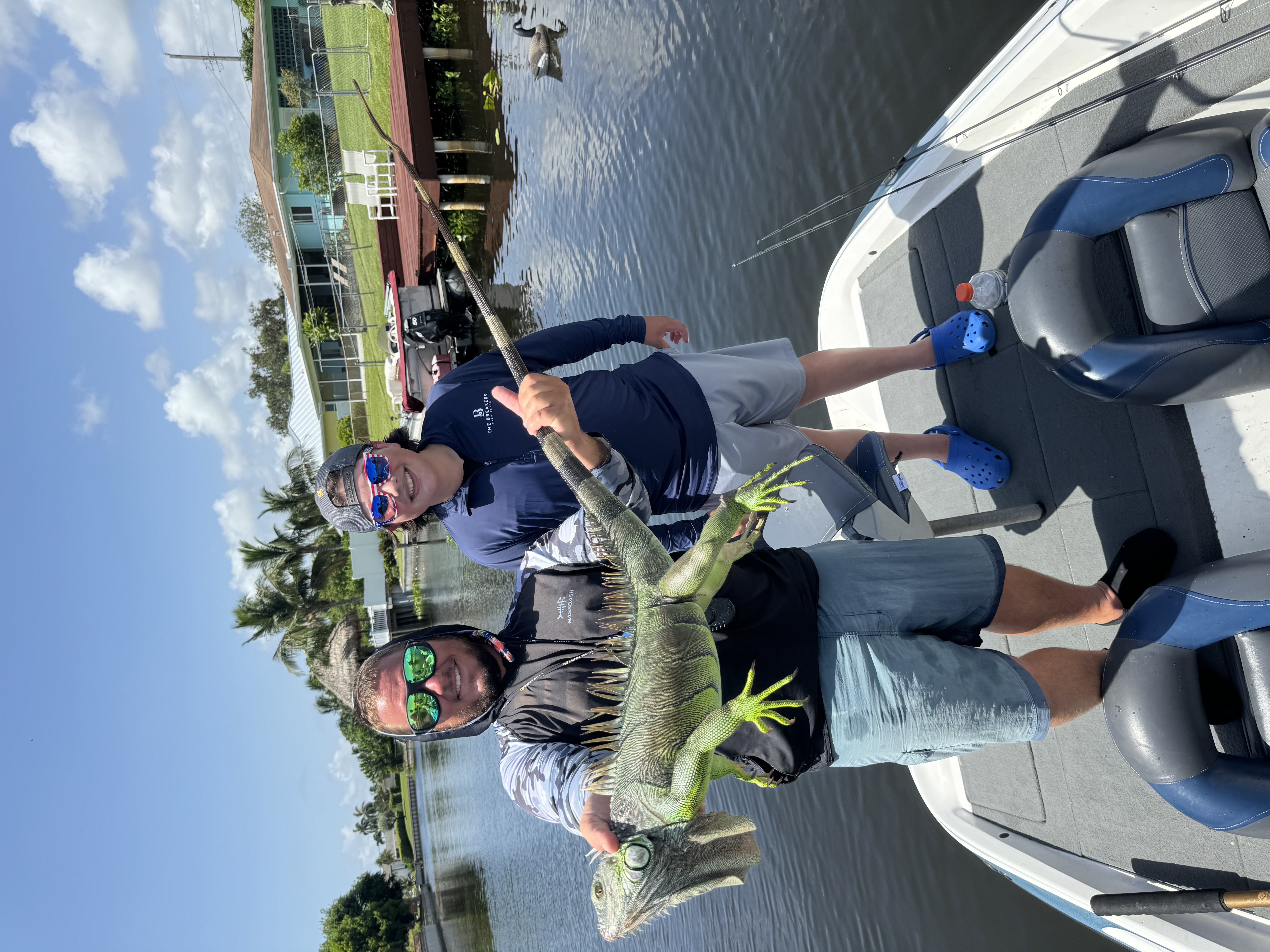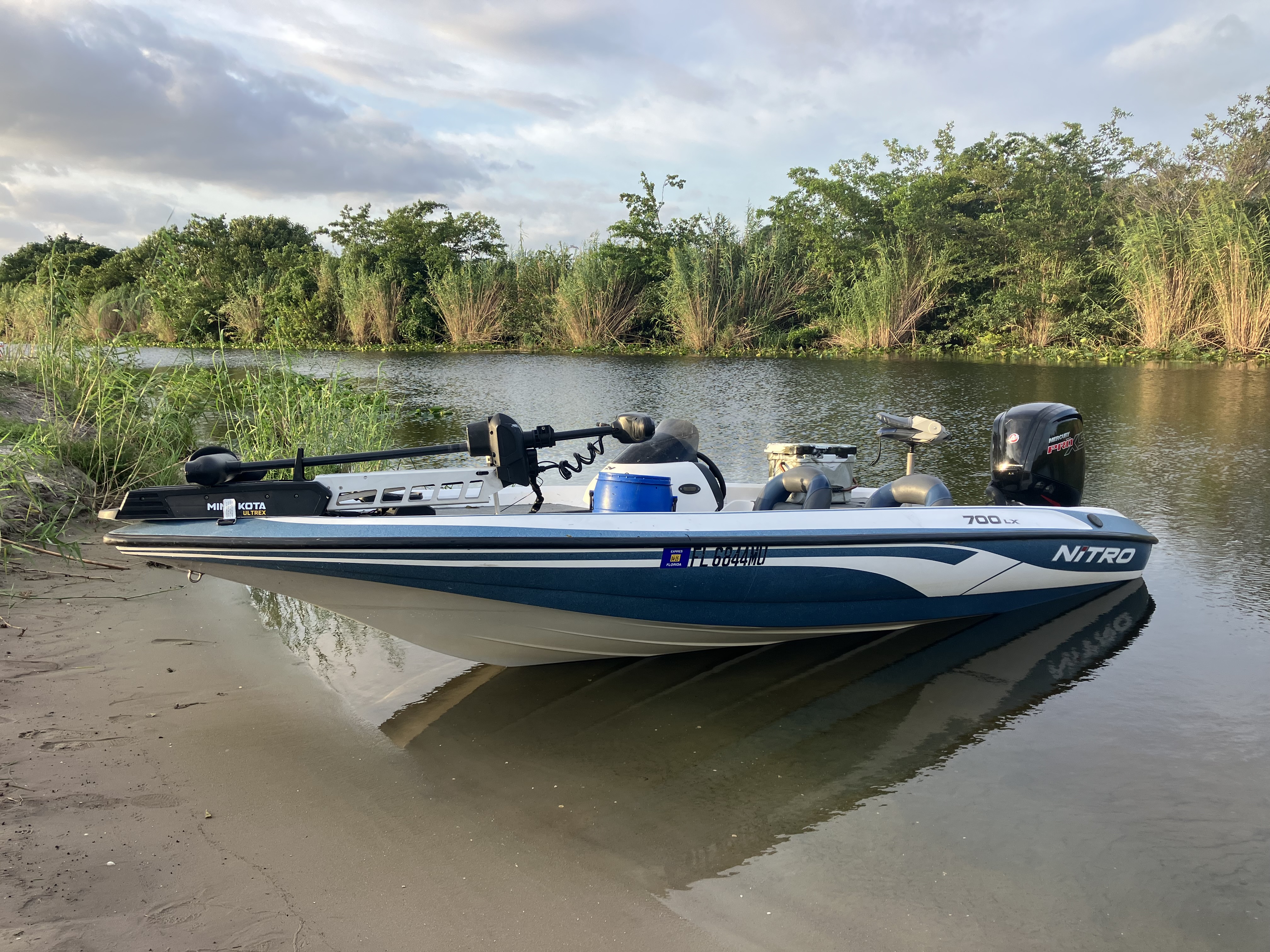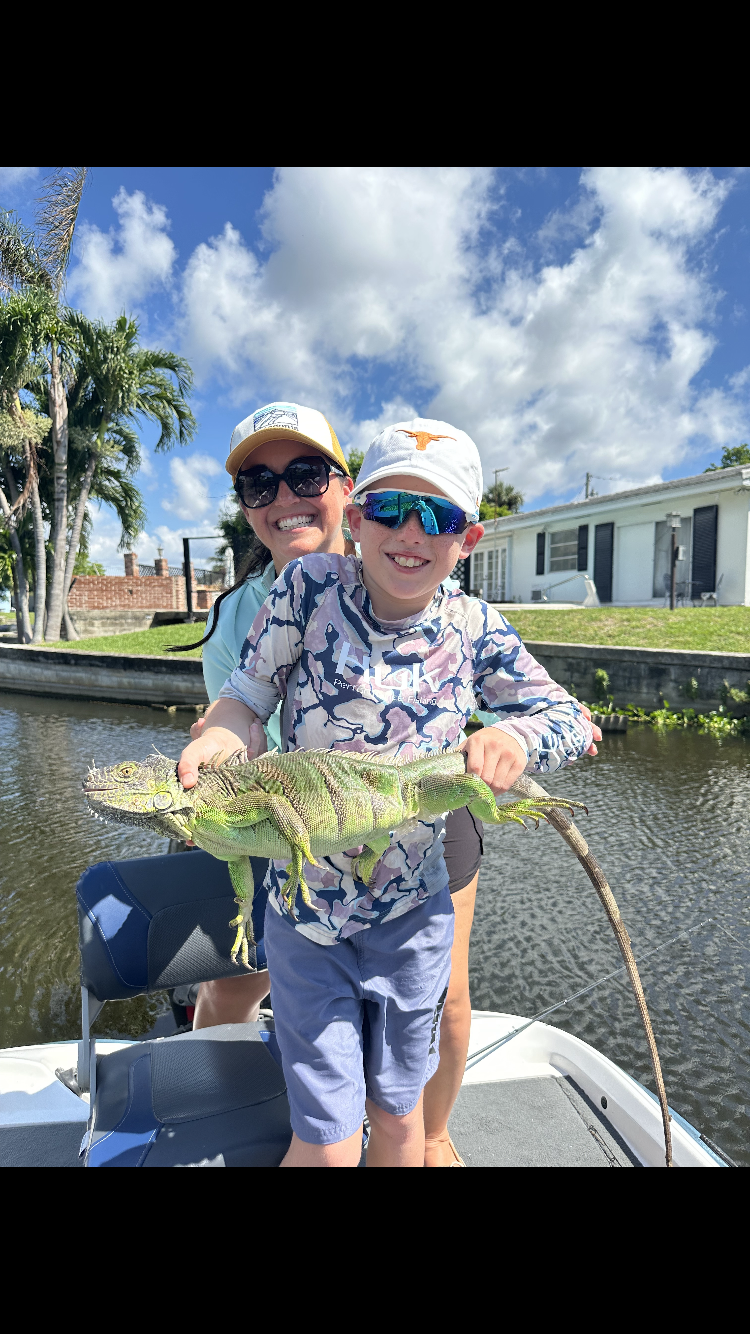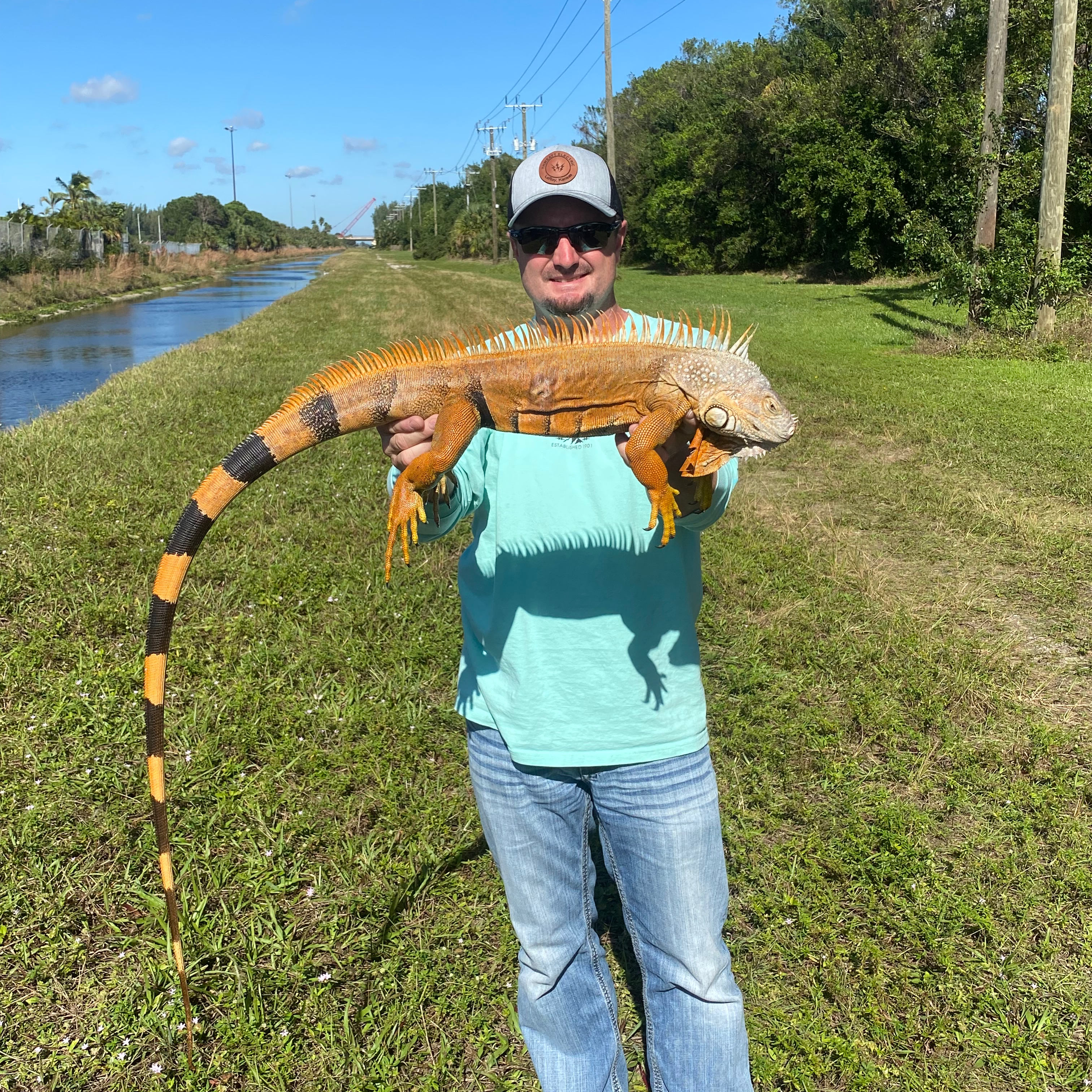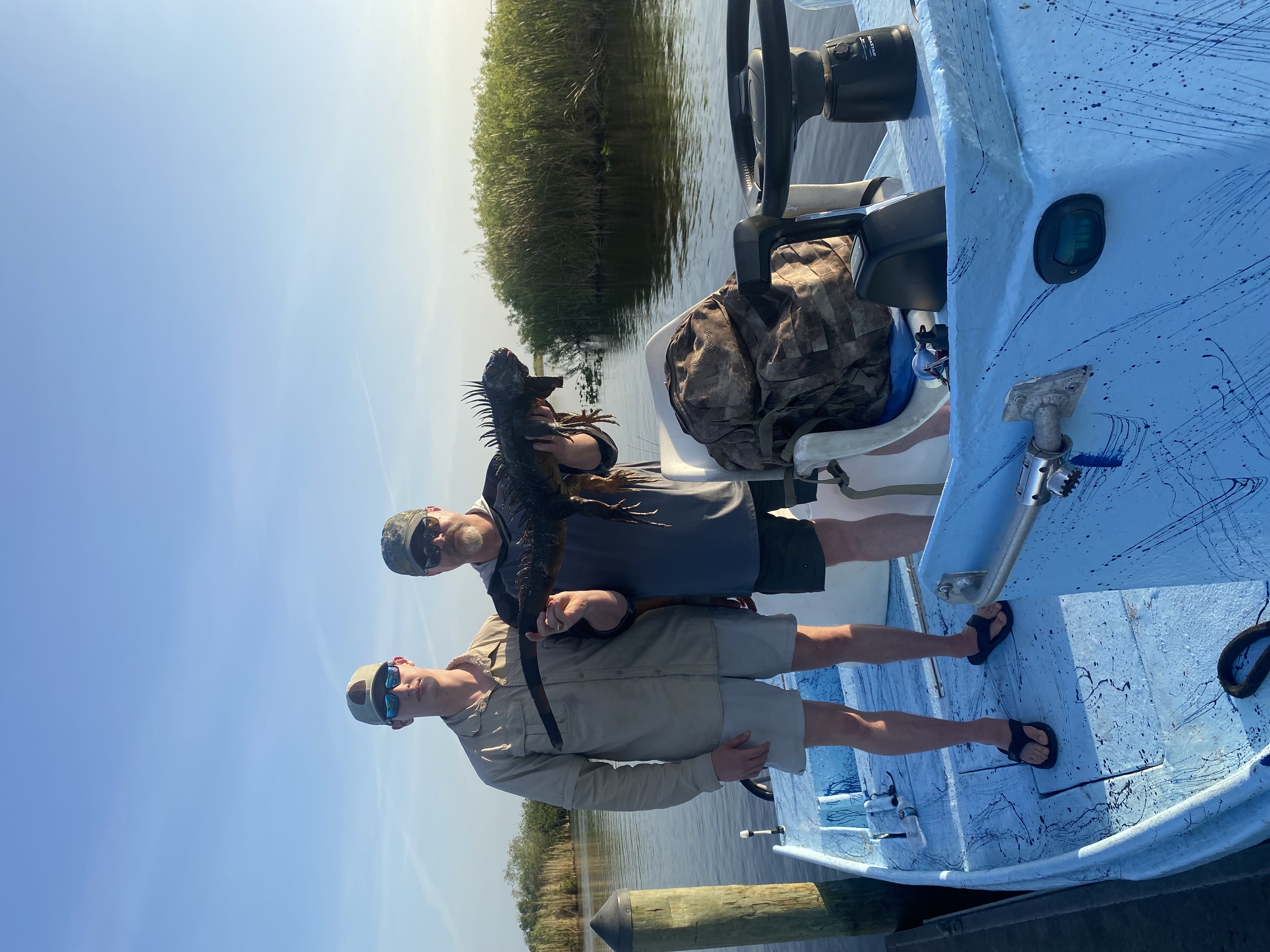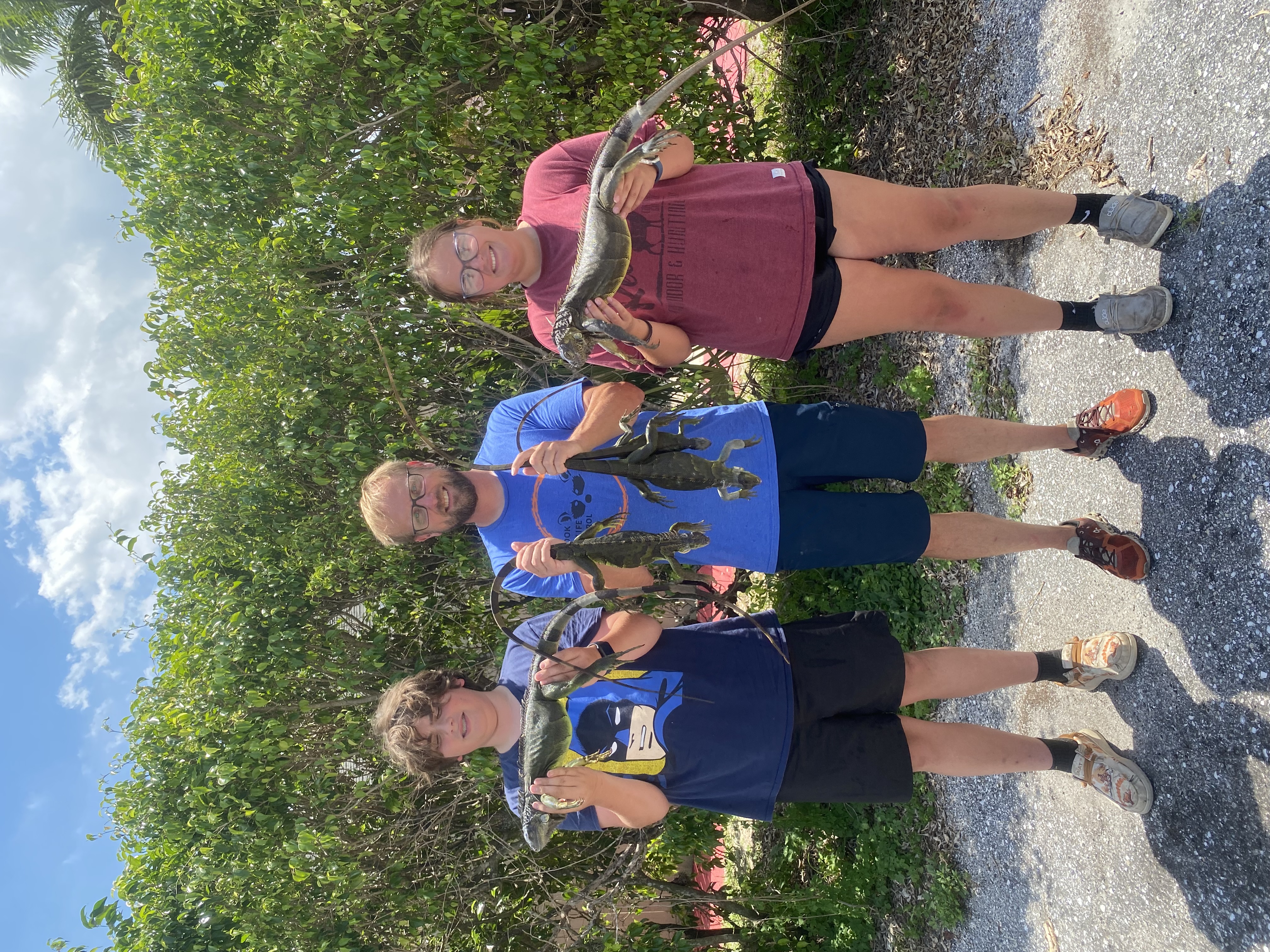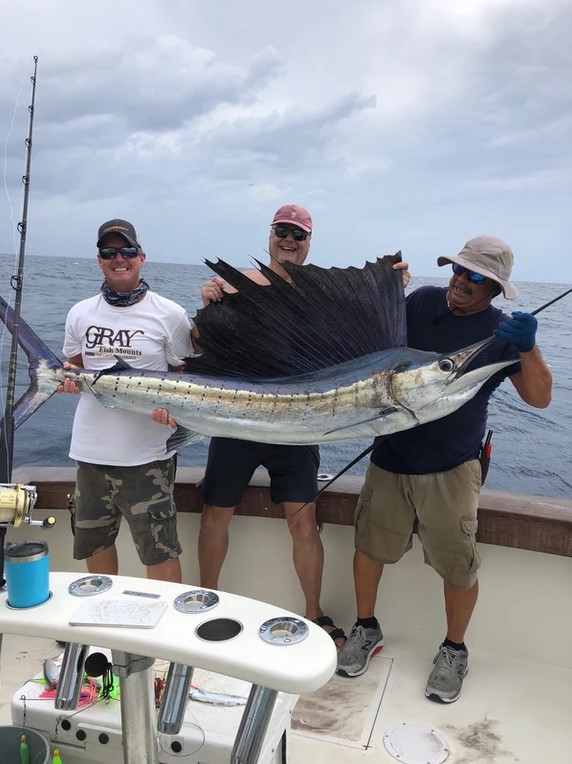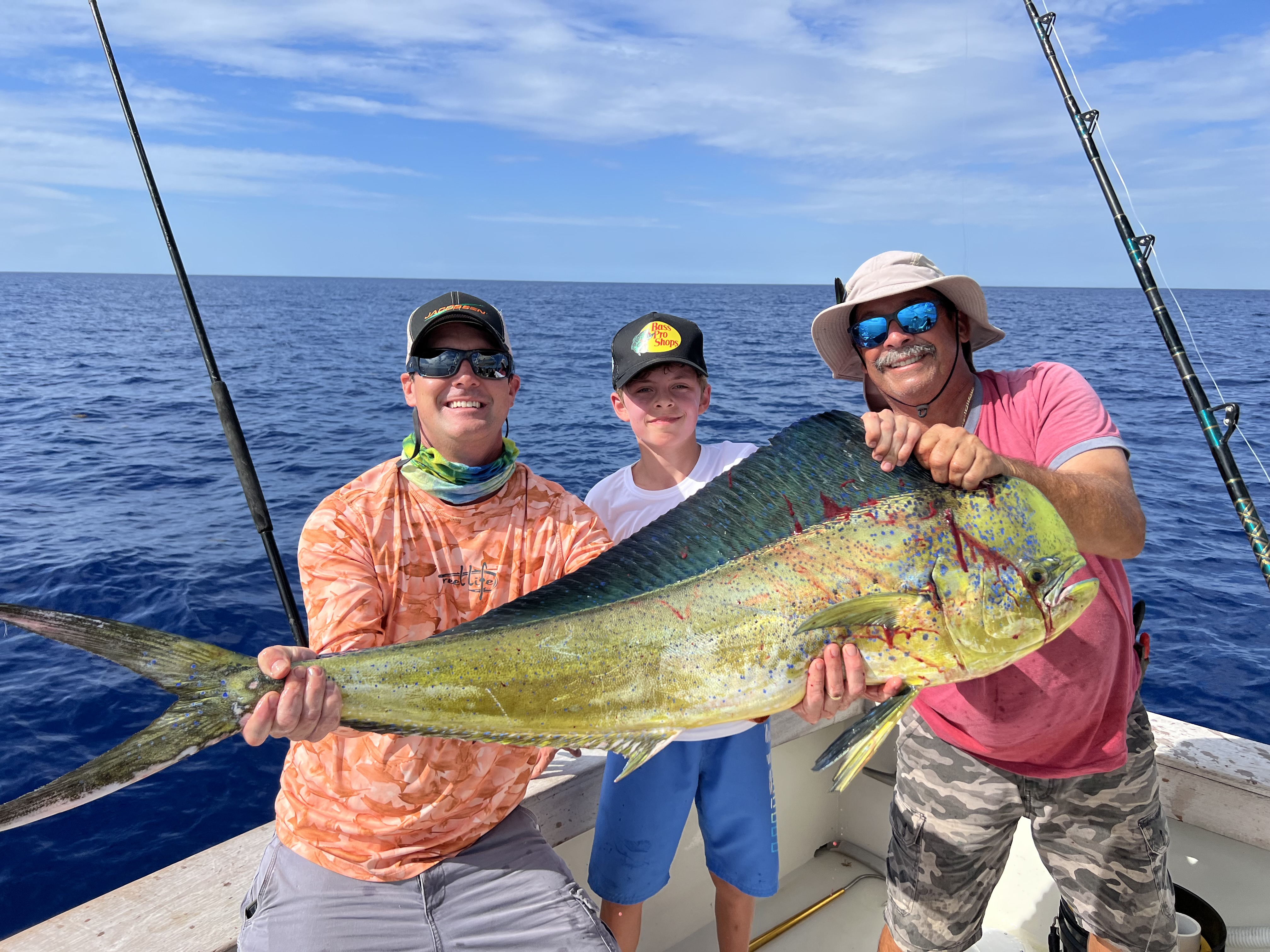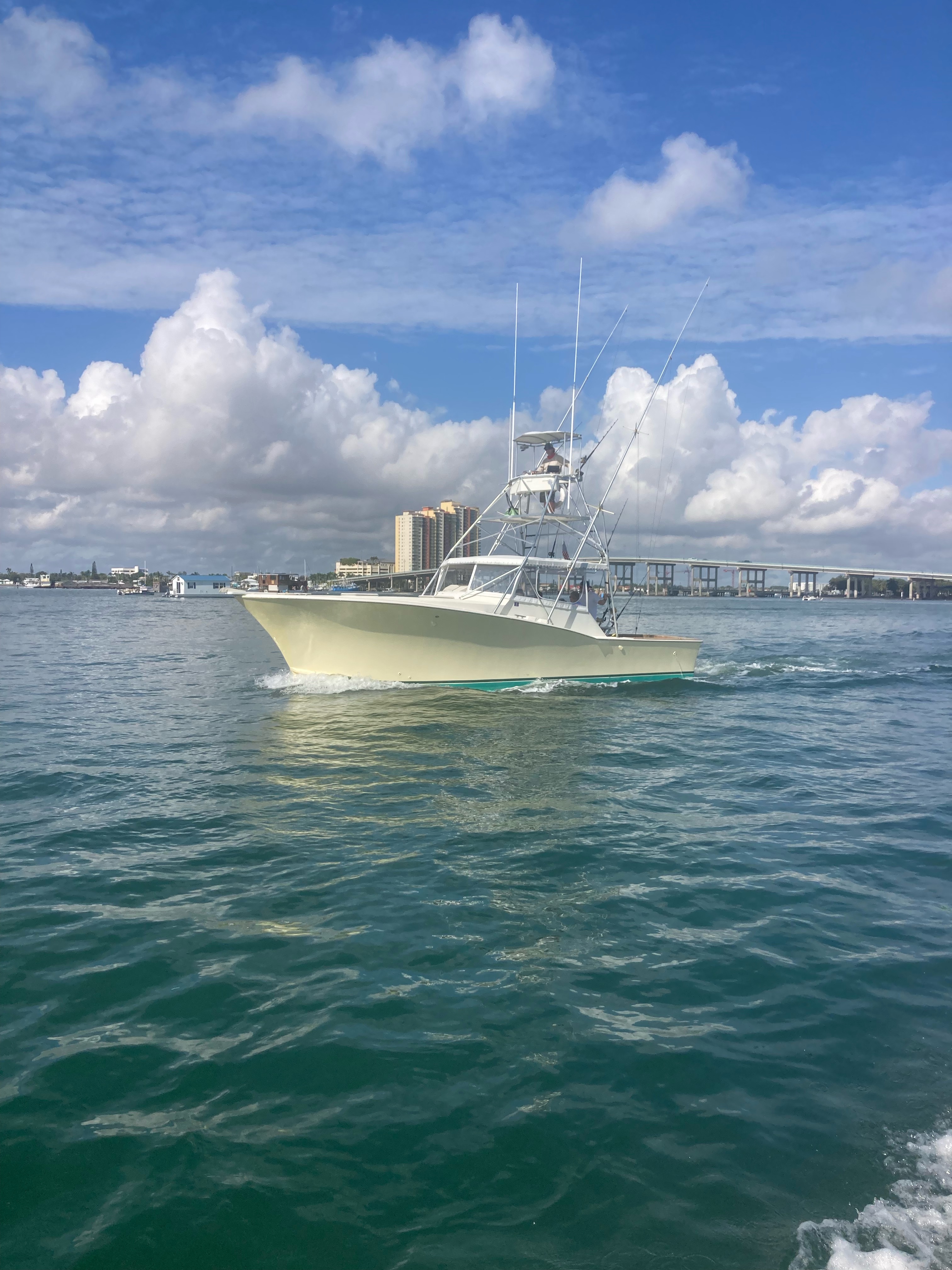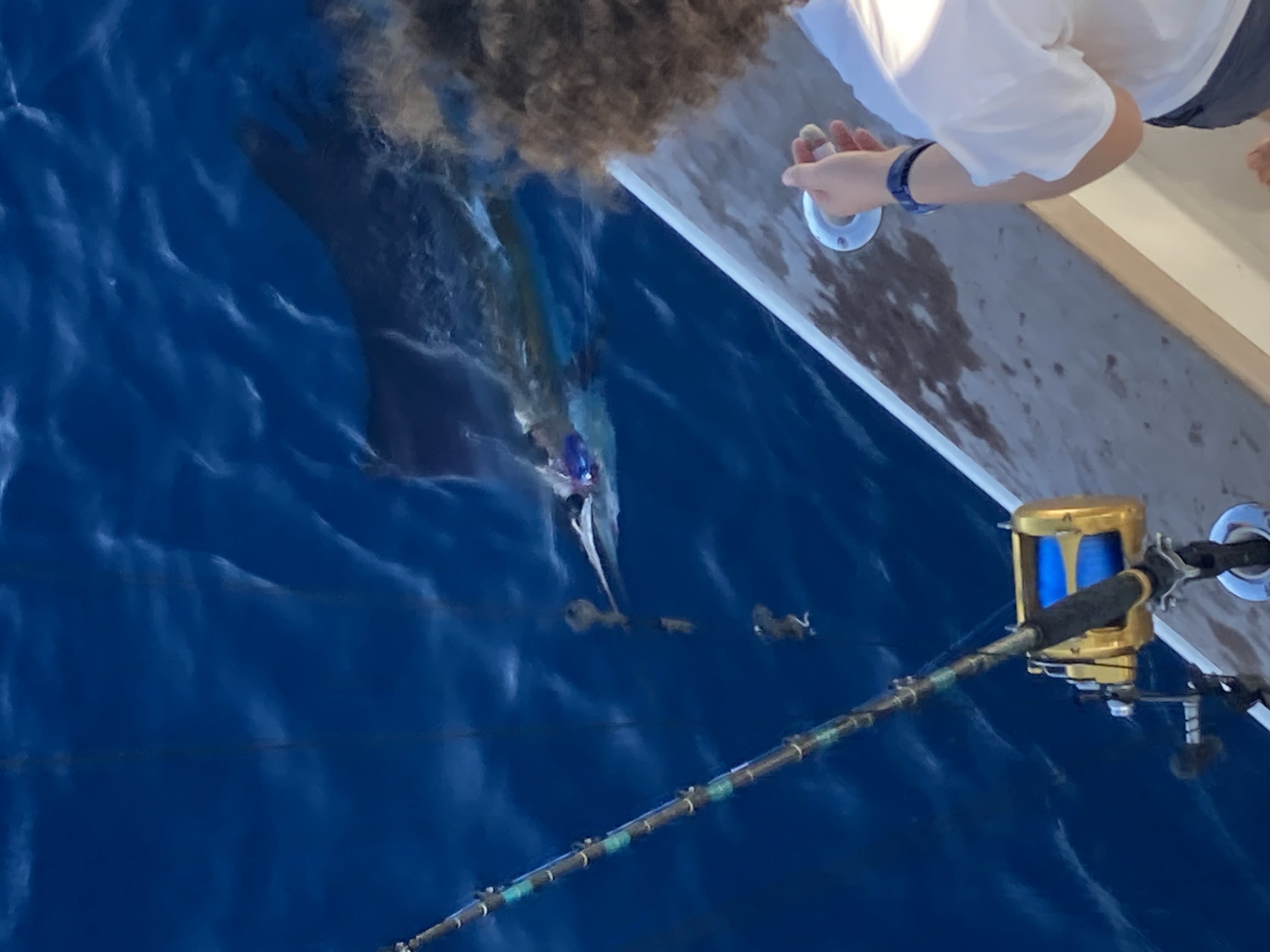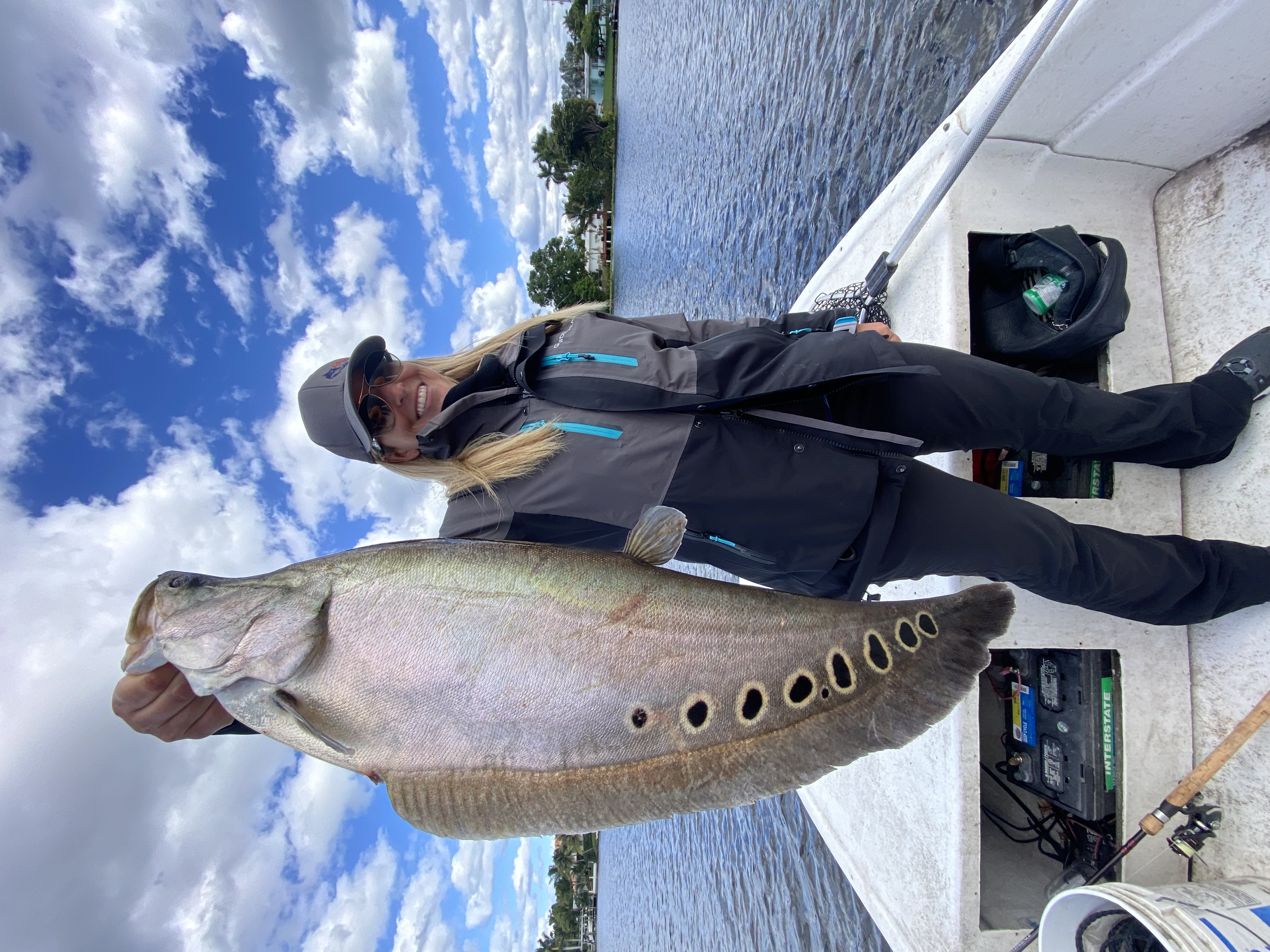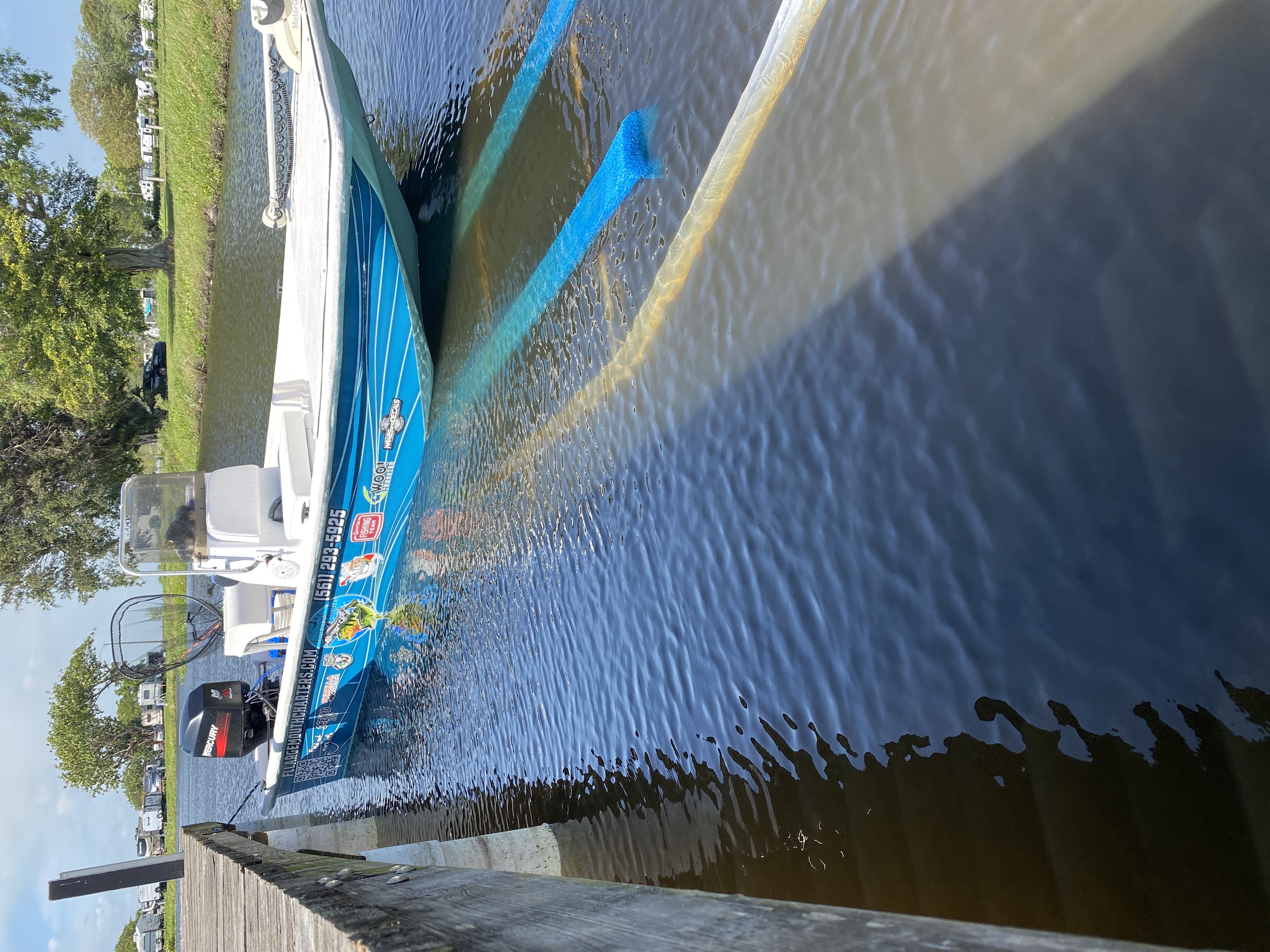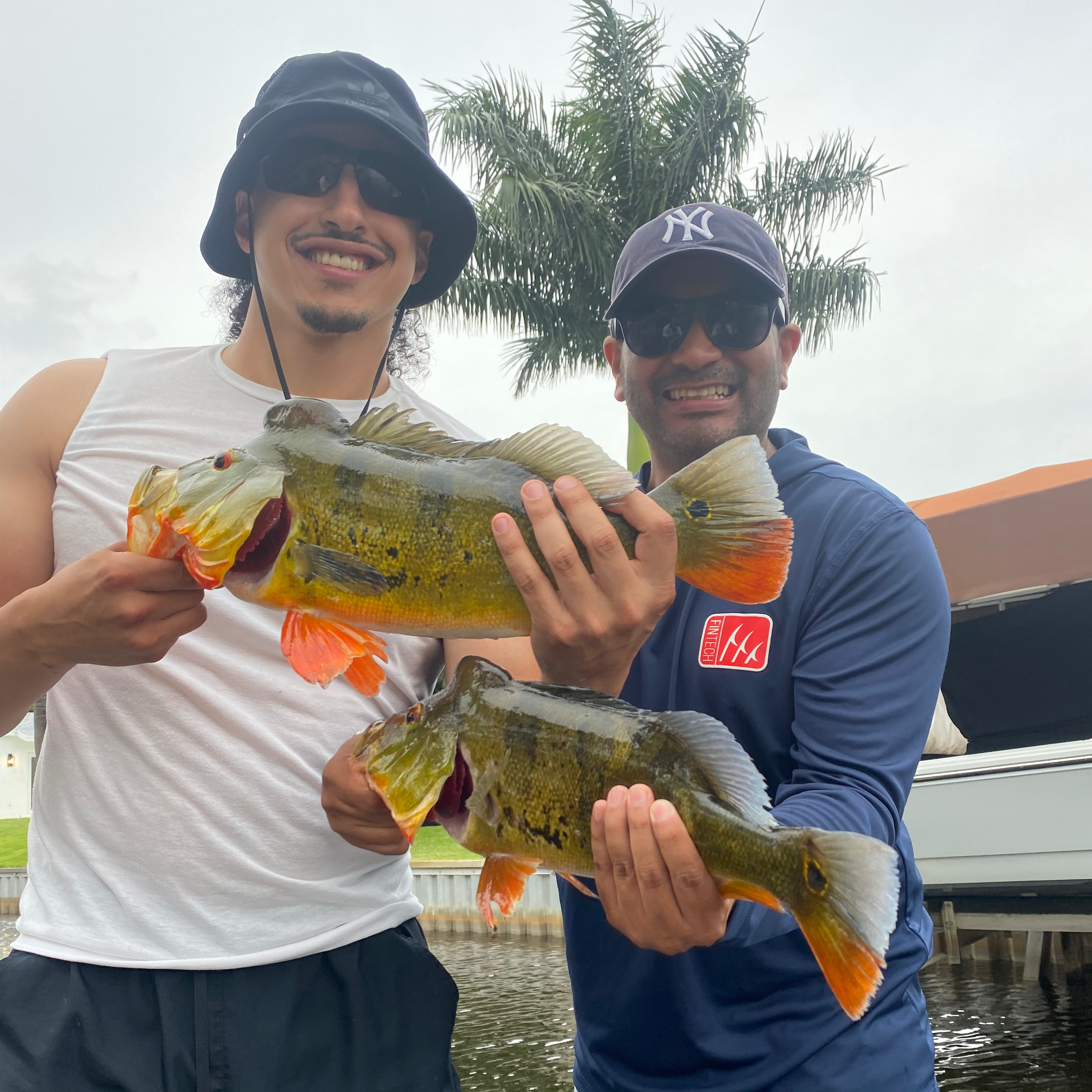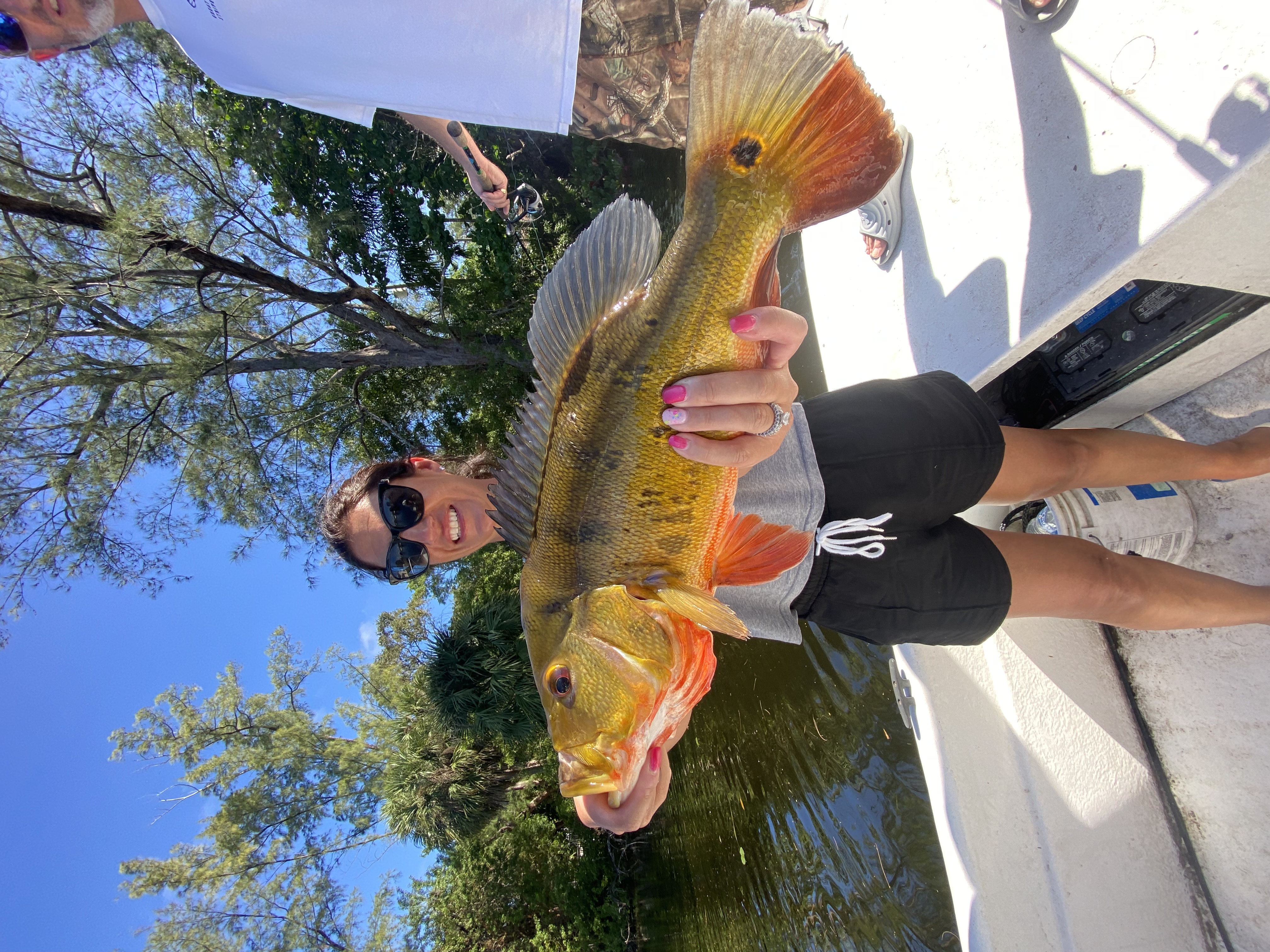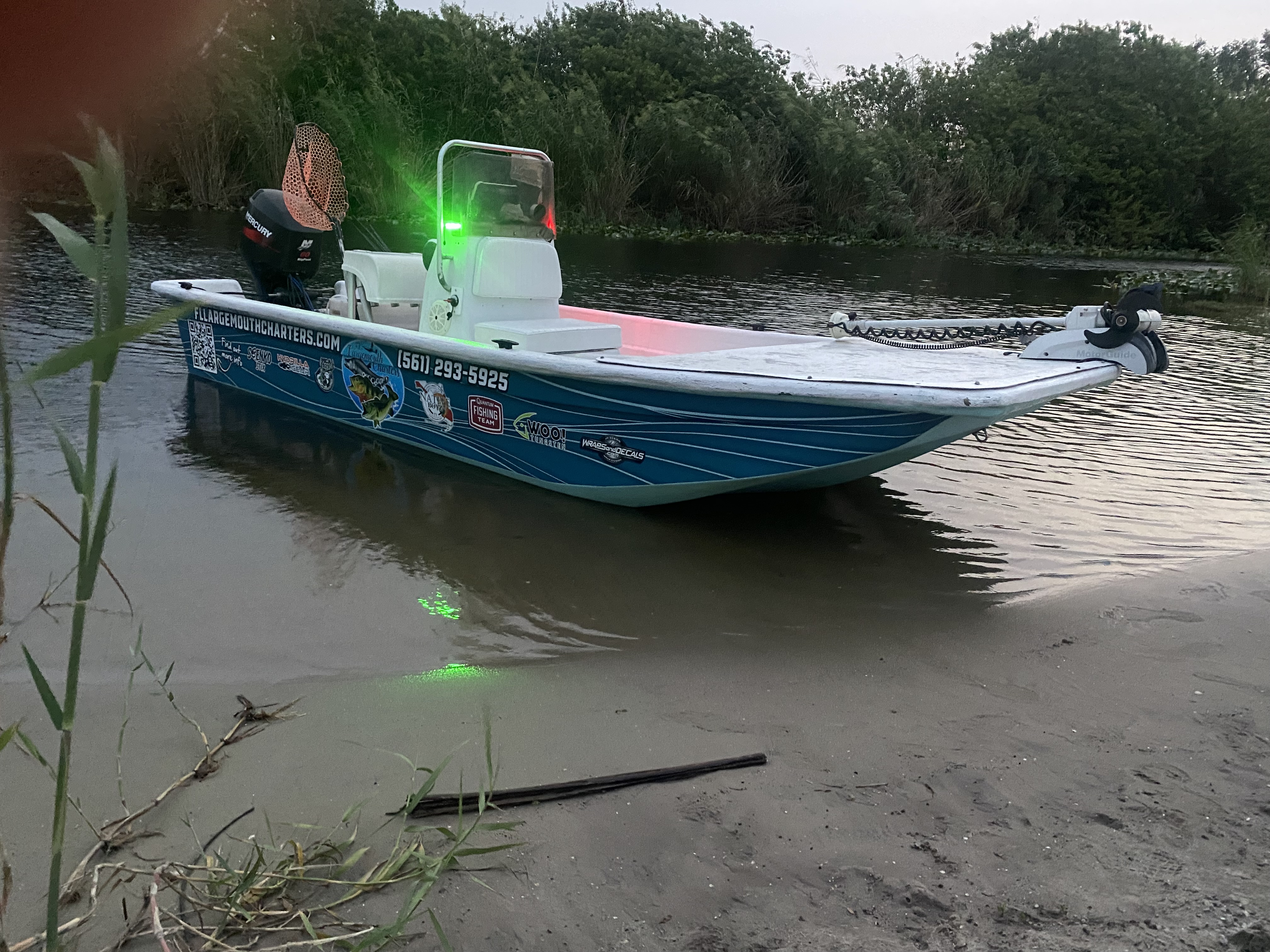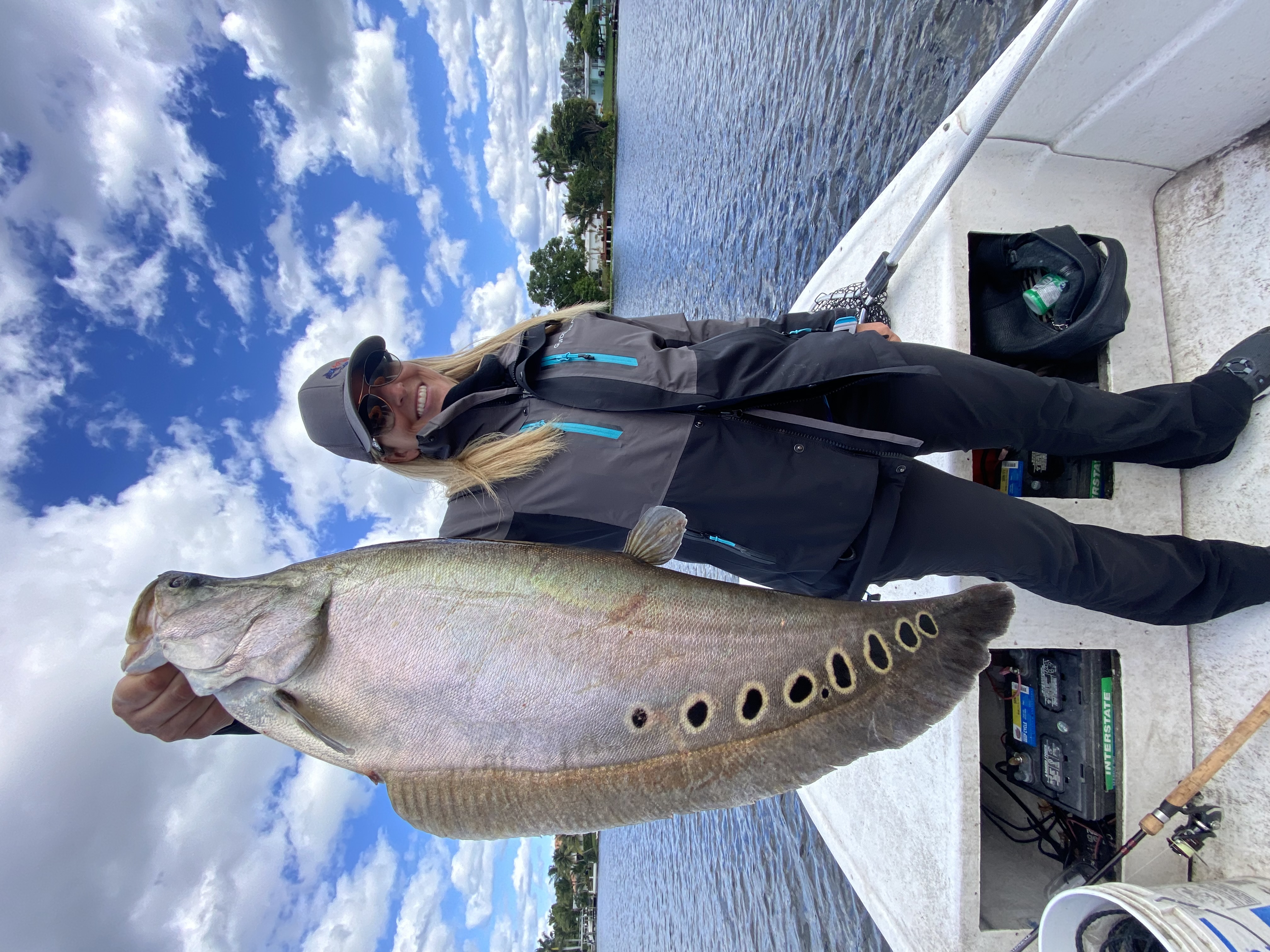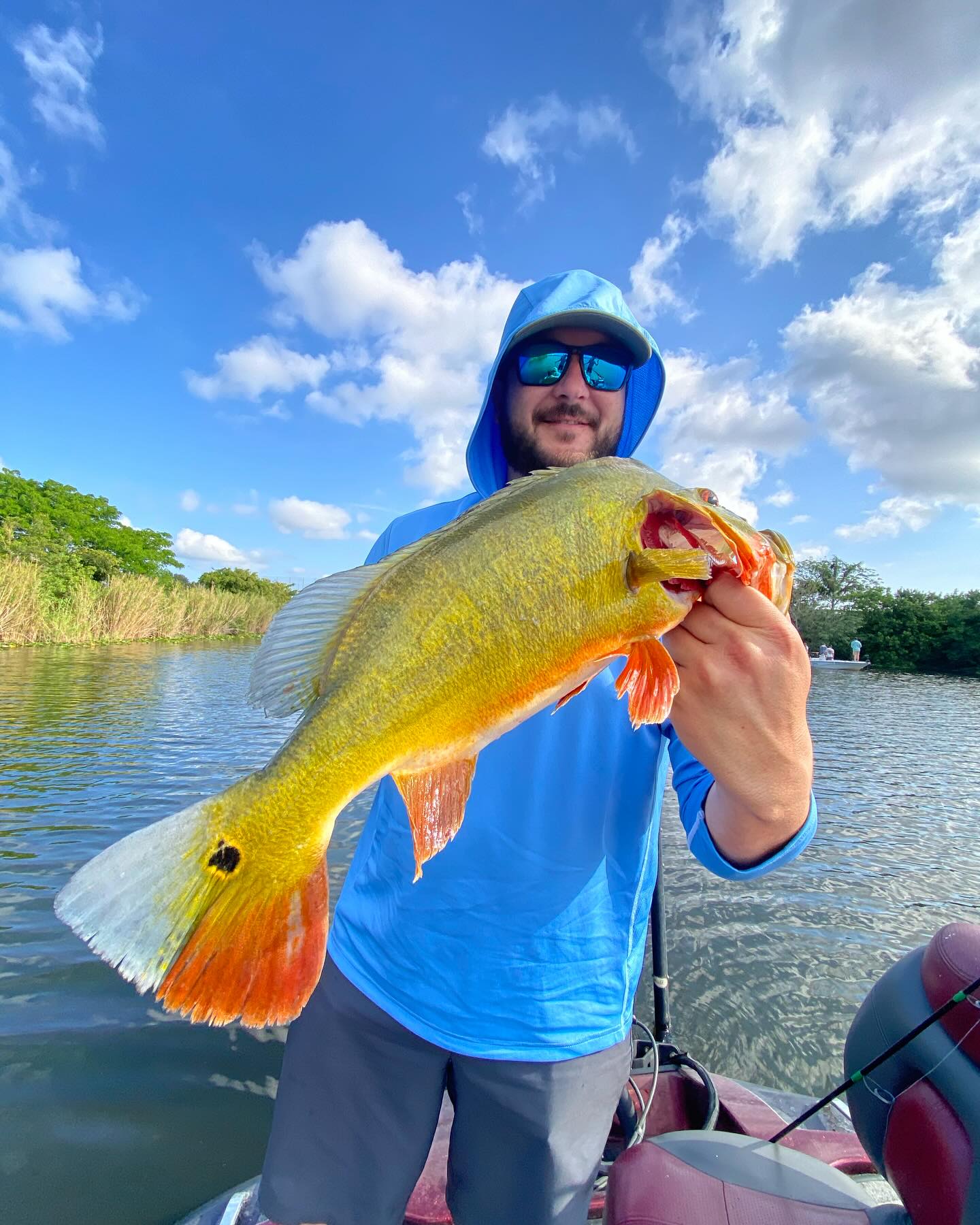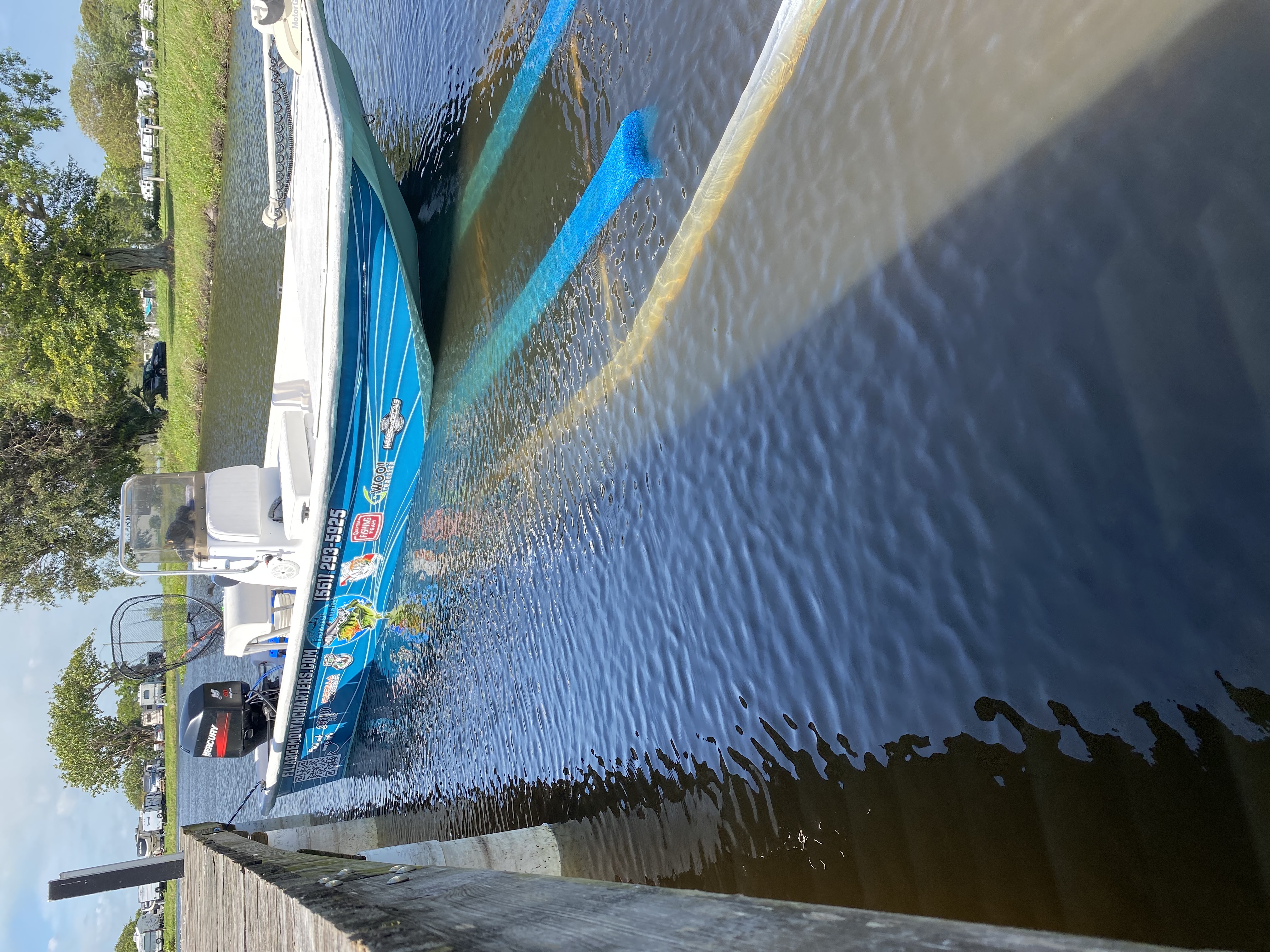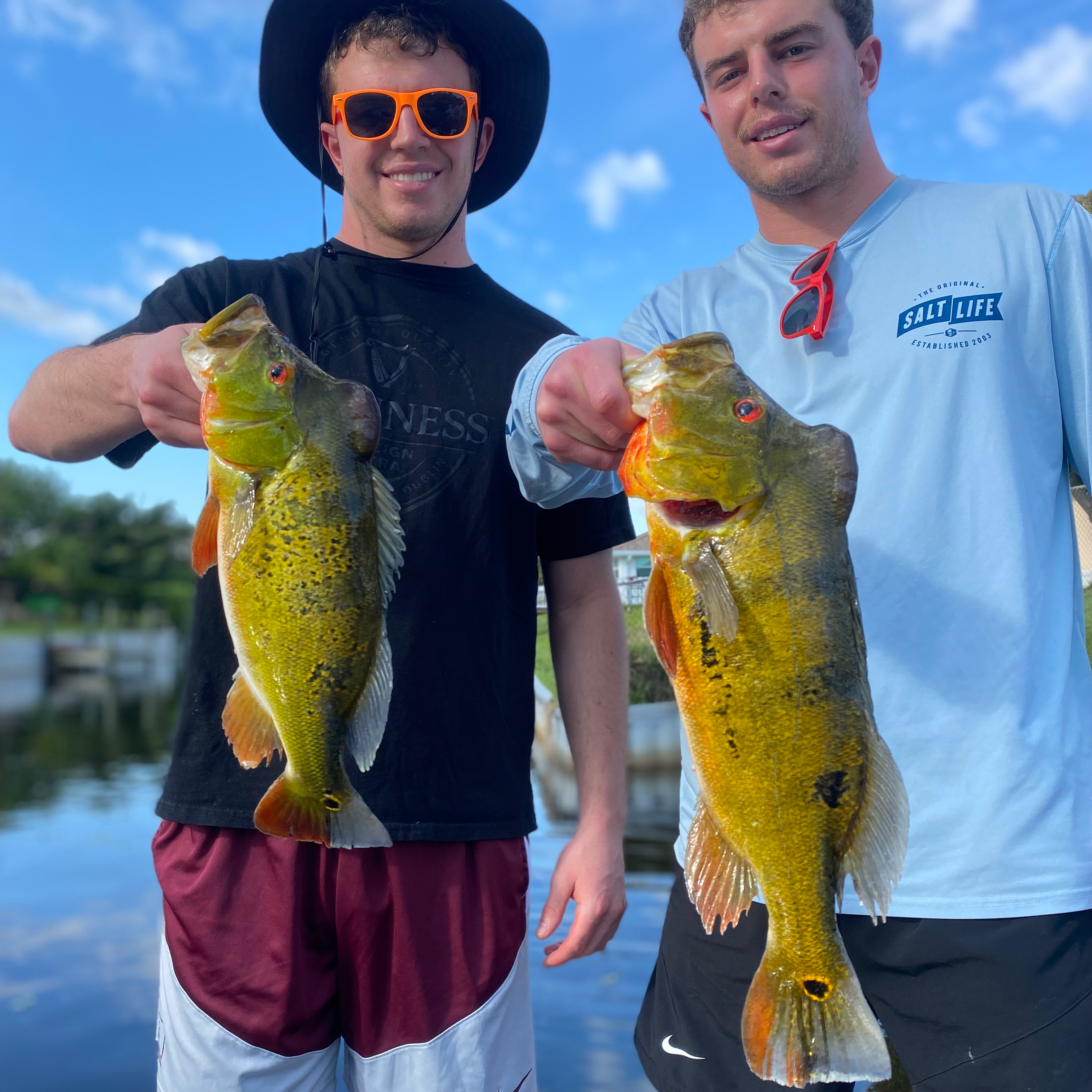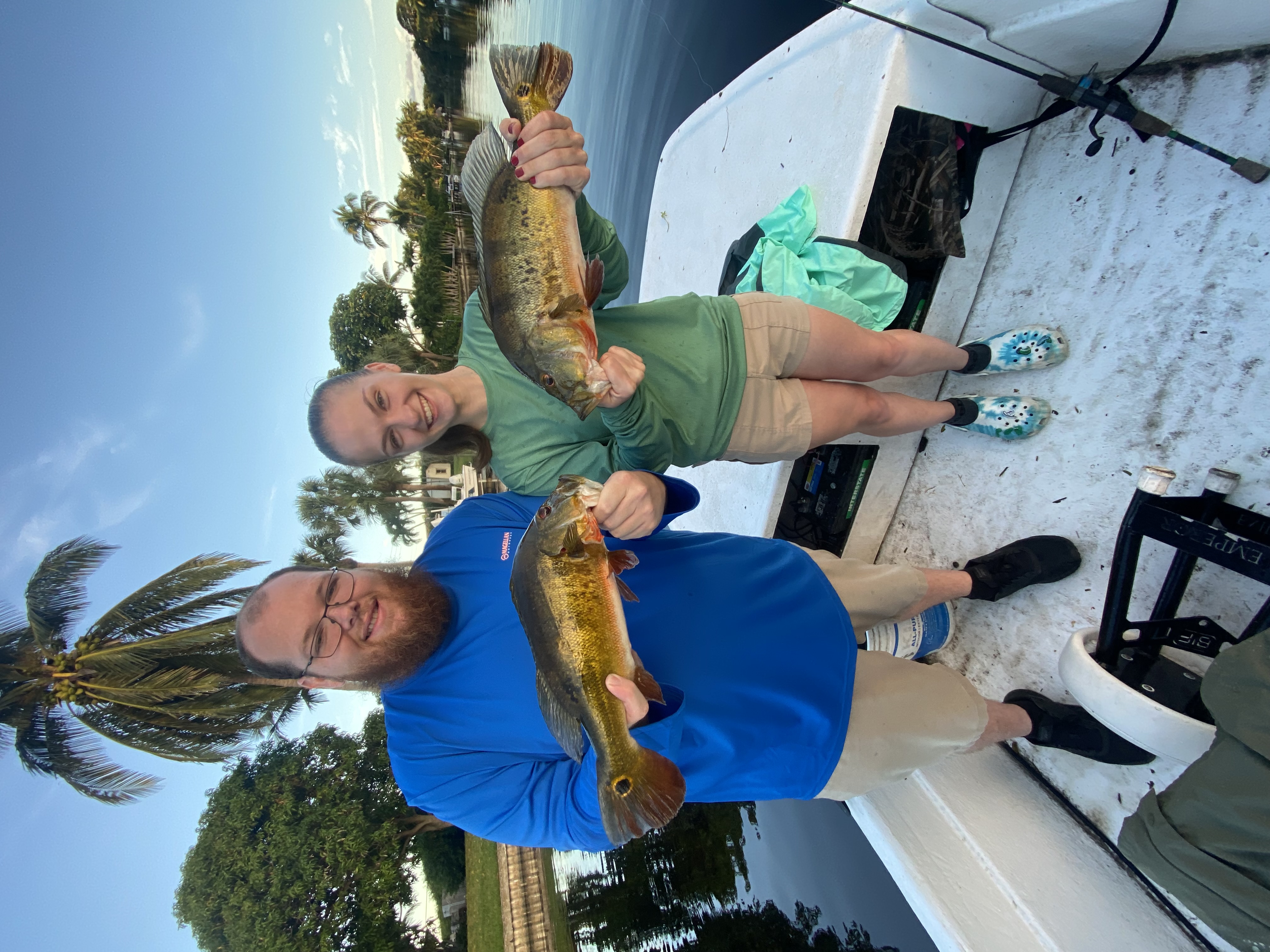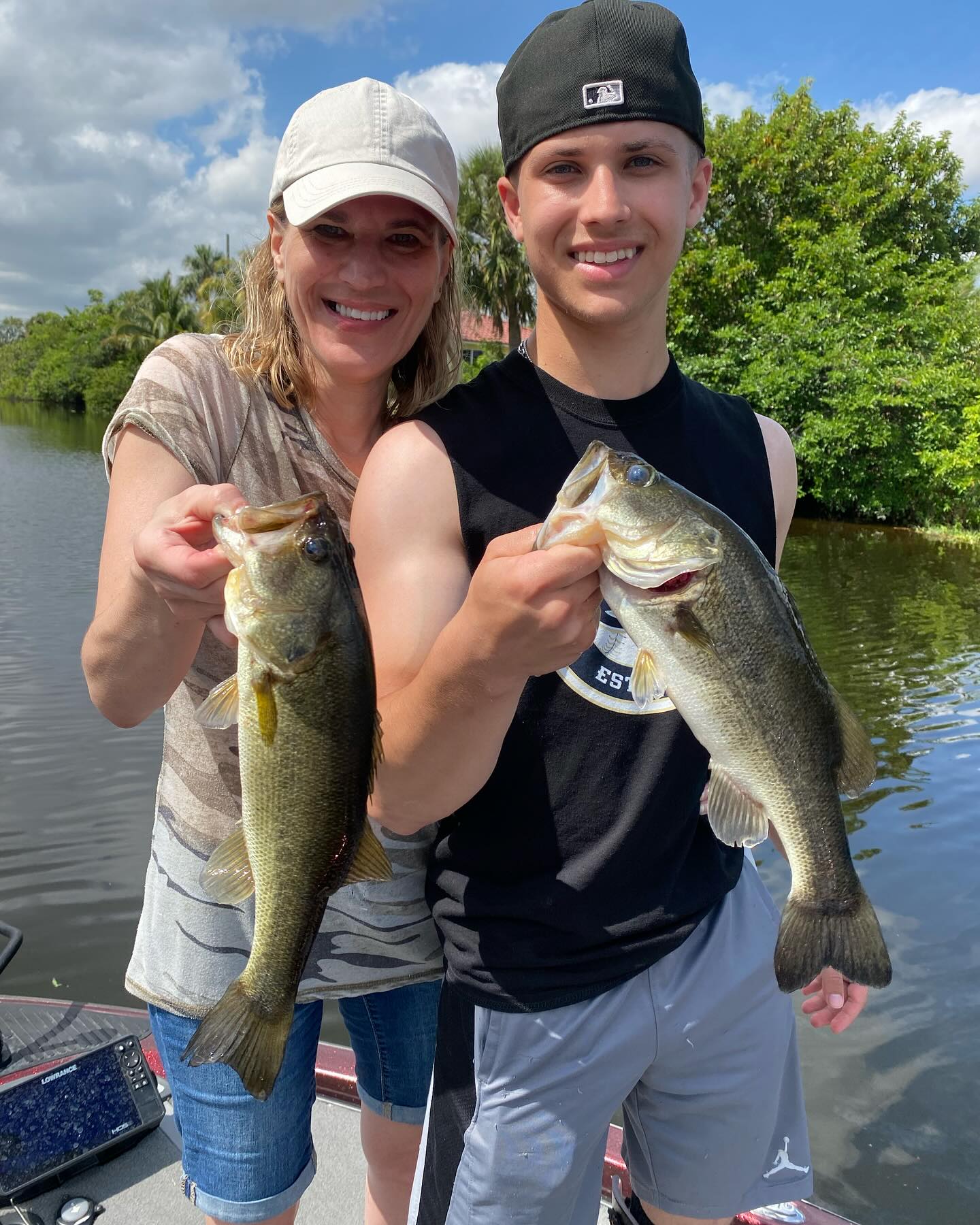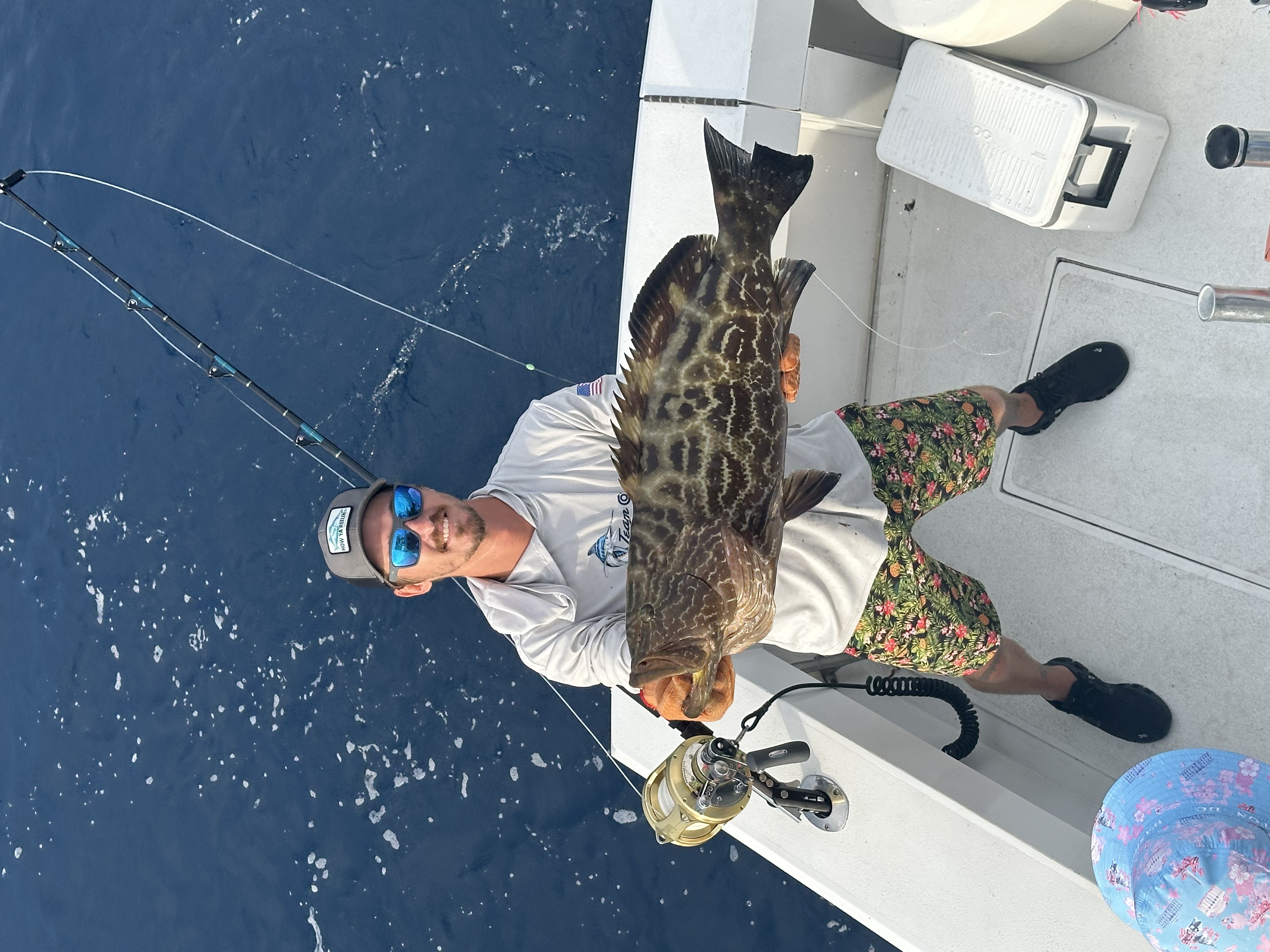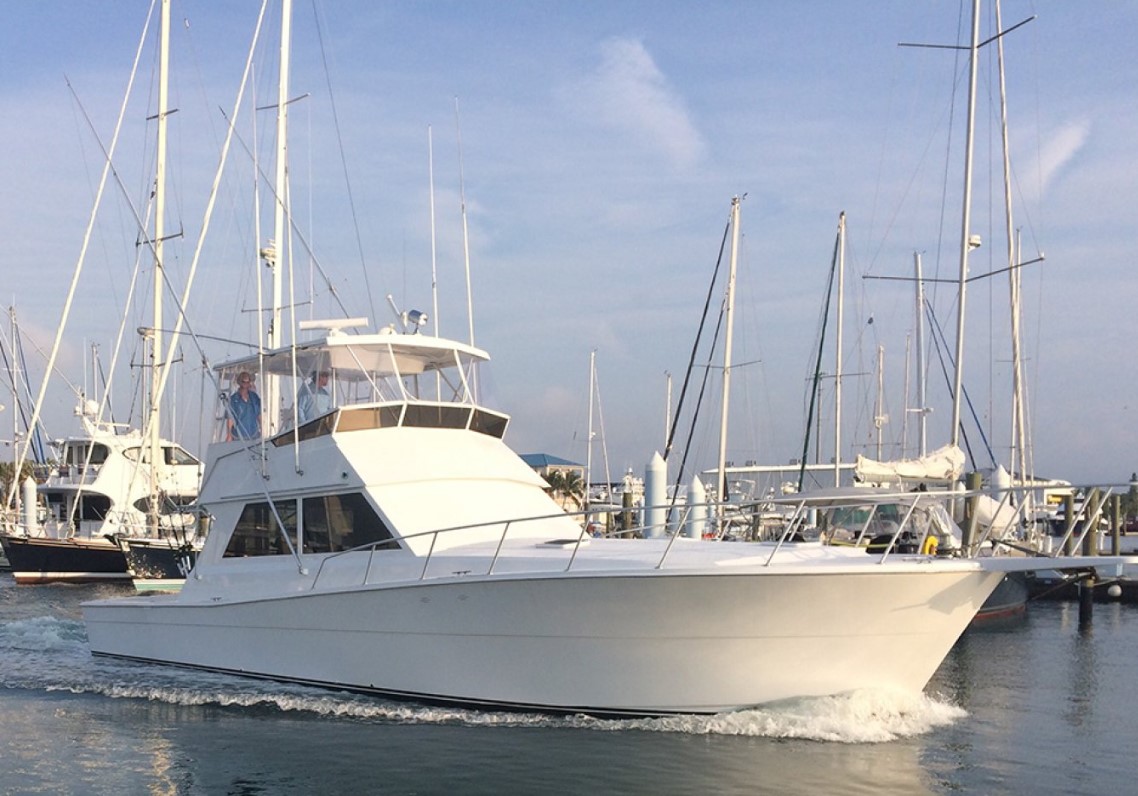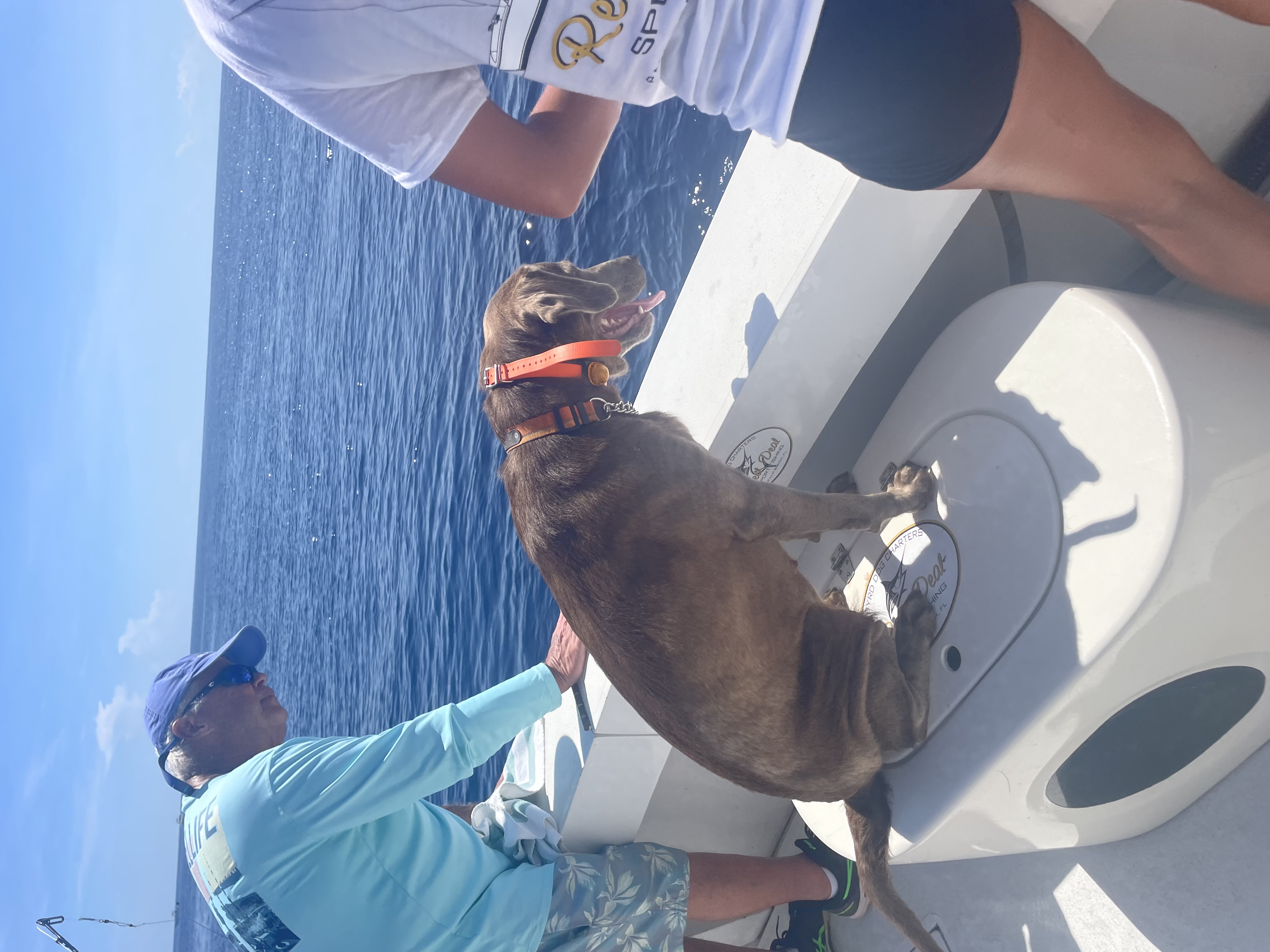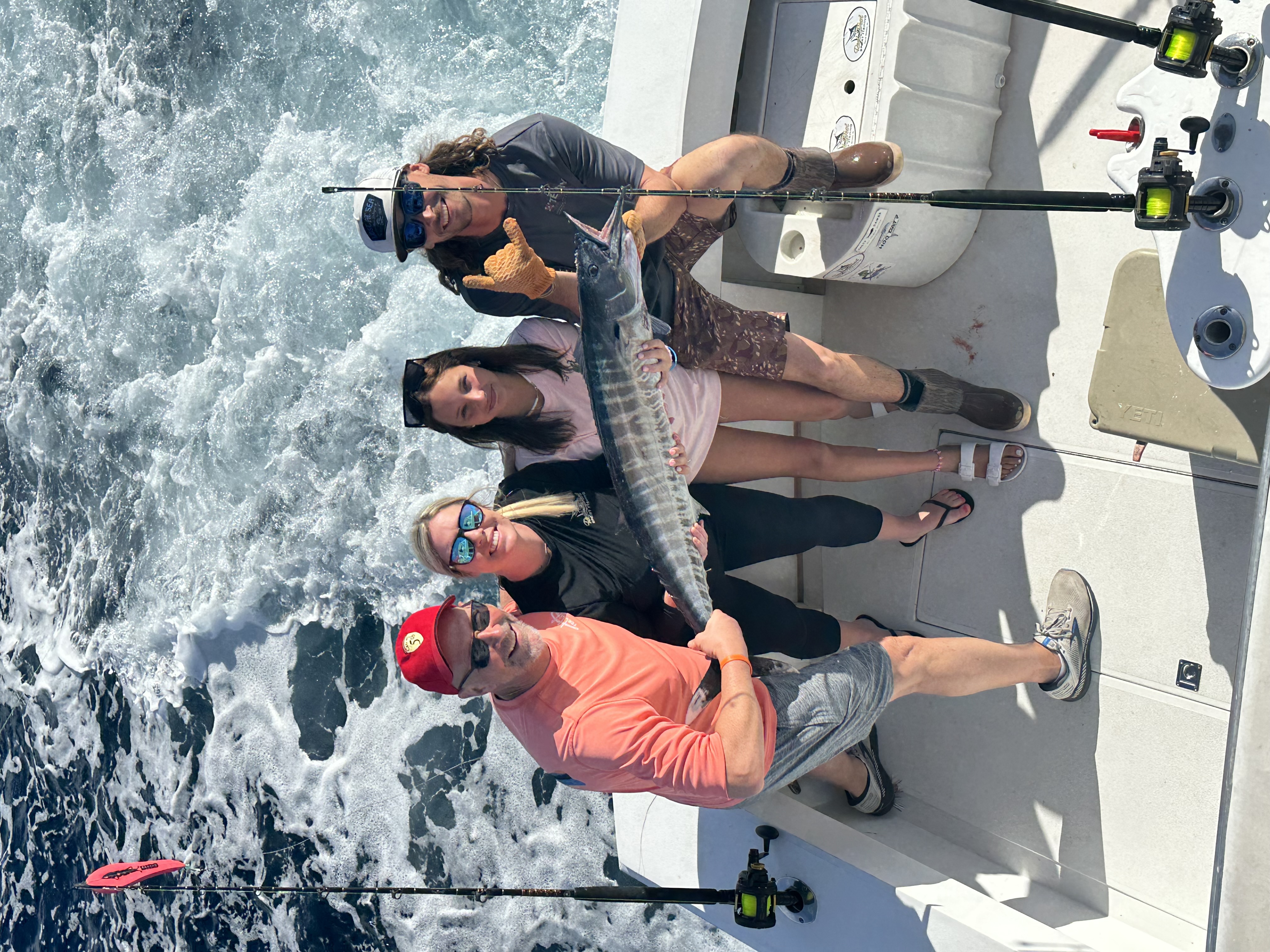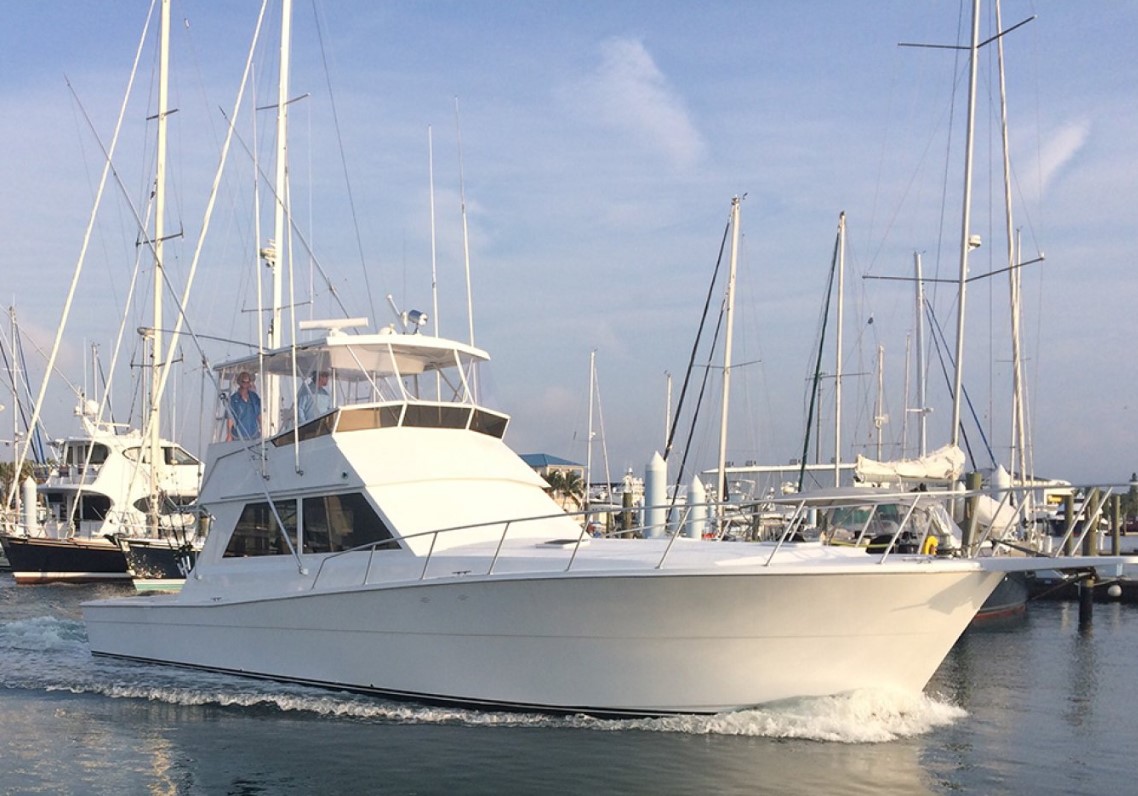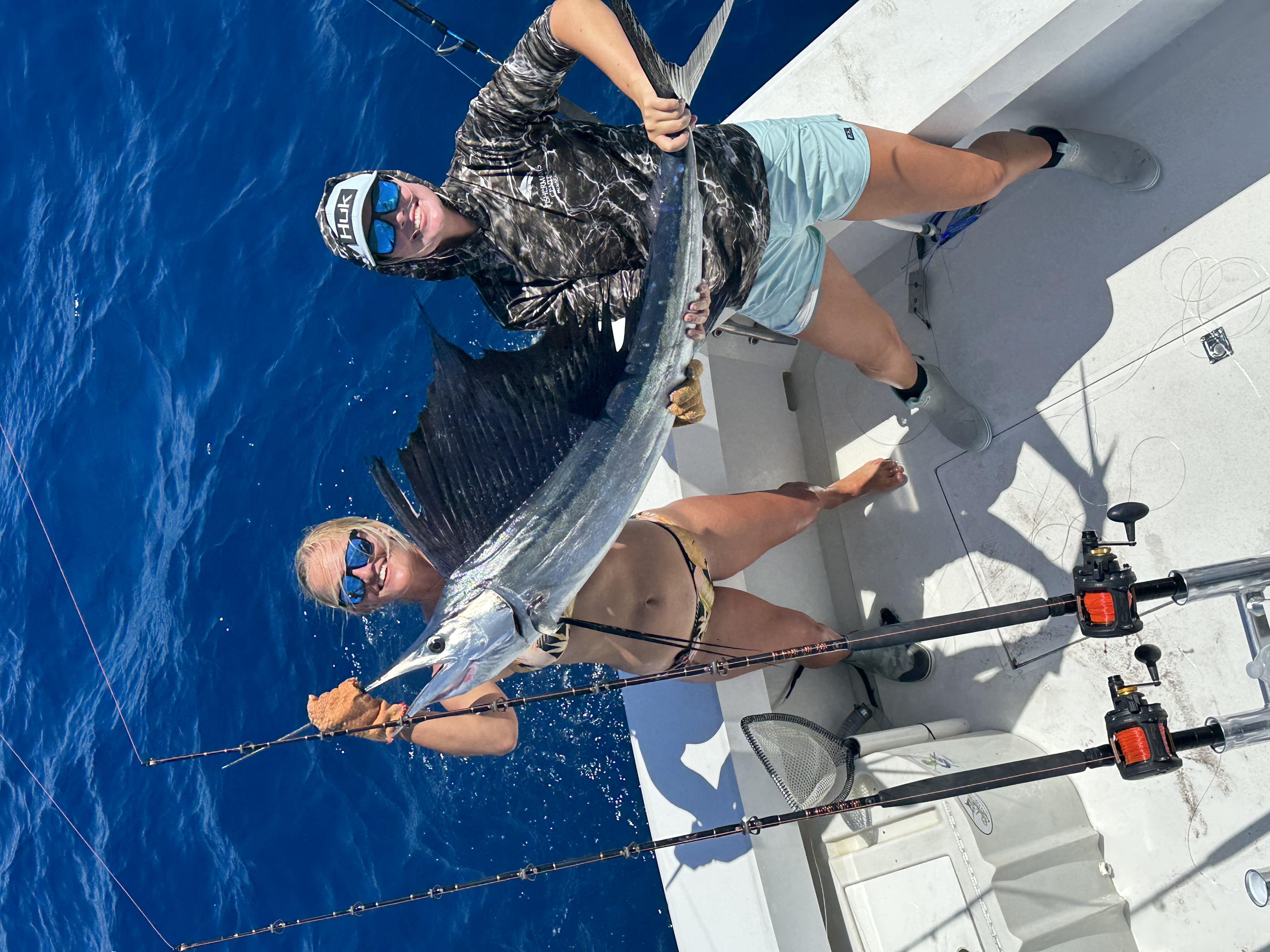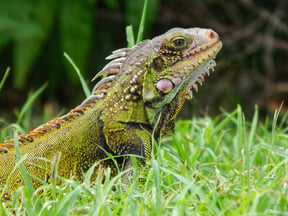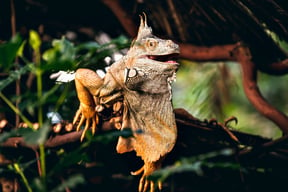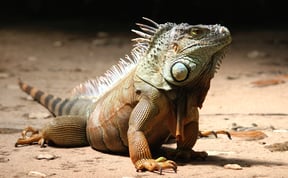Invasive Species Hunting in West Palm Beach
Urban Jungle Iguana Hunt
Invasive Species Hunting in West Palm Beach
West Palm Iguana Hunting
Deep Sea Fishing in West Palm Beach
Lip Rippin' Extravaganza
Deep Sea Fishing in West Palm Beach
Early Week Special!
Lake Fishing in West Palm Beach
Fun Full Day Peacocks And Exotics
Lake Fishing in West Palm Beach
Epic Peacocks And Exotics (PM)
Lake Fishing in West Palm Beach
Epic Peacocks And Exotics (AM)
Lake Fishing in West Palm Beach
Peacock Bass Kids Quick Trip
Deep Sea Fishing in West Palm Beach
1/2 Day Fishing Trip
Deep Sea Fishing in West Palm Beach
Full & 3/4 Day Fishing Trips
We started Captain Experiences to make it easy to book fishing and hunting guides around the world. With over 2,000 Damn Good Guides, our platform makes finding and booking a trip seamless. Head here to check out our trips.
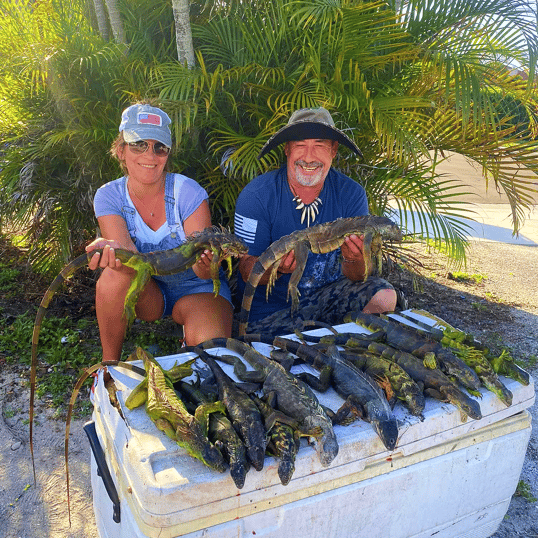
Invasive iguana hunting in Southern Florida
Jonathan at Captain
Alright. Hey everybody. This is Jonathan Newar with Captain Experiences, and I'm here with Charlie and Kassie of Lowes Gator and Iguana. Looks a little chilly down there; where you guys patching in from?
Charlie
We're out in Wellington right now. Wellington, Florida, South Florida, just on the bottom side of Lake Okeechobee.
Jonathan at Captain
Awesome. Well, cool. I mean, would love, you know, to kick things off. You know, obviously, you guys offer, you know, iguana hunts in South Florida. You offer Gator hunts, and you offer hog hunts. And, you know, I want to get into, you know, each one of those, you know, experiences and what makes them unique. But would love to just kick things off and hear from each of you, you know, how you got into guiding and you know, making a living in the outdoors?
Charlie
Well, how it started for me. I commercial fish. That was my dream. I literally have done it for about 2530 years. Soon as I was old enough to be able to work, I was like, I want to be a fisherman. So that just led into it, and after about 20 years of doing that, then I jumped into the guiding side of it, and was fortunate to be able to jump right into gators and iguanas and all the hogs. Because with all my experience of fishing, I kind of knew where all the Gators were hiding and where the iguanas were, so kind of just jumped into that and ran with it, and been fortunate to have a great time and have everybody have a great experience when they come. And it's been great. It's awesome.
Kassie
So I grew up hunting and fishing with my dad, and then when really and I met, he was fishing, and it was just on from there. And we've kind of experienced going through the guiding and everything together, and we do it as a couple, and we love doing it. There's nothing better.
Jonathan at Captain
That's awesome. Well, yeah, I mean, curious as well. You know, how did you guys meet?
Kassie
We both fished at the same place. So I was like, Oh, he's really cute. And it was on from there, we were fishing together and had some kids together and just enjoying the outdoors together.
Jonathan at Captain
That's amazing. I mean, truly living, living the dream. So, so congratulations there, Charlie. I'm curious what, what sort of commercial fishing was it that you know that had you known where the Gators and iguanas and stuff are?
Charlie
I did a lot of like, tilapia, catfish, a lot of out in the swamp, going out where most people wouldn't want to go, and I had to deal with the Gators coming up after the nets and the traps and everything all the time. So I kind of was accustomed to knowing how to deal with an alligator, where most people are, like, super scared of it. So, you know, I show up to do Gator hunts now, and I'm wearing shorts and crocs, and people are looking at me like, are you crazy? And I'm like, well, gators, fear crocs, so let's go.
Jonathan at Captain
That's awesome. I love that line. Well, cool. I mean, I'm curious, you know, over the years, from from y'all perspective, you know, how South Florida has changed, you know, because, you know, you've got West Palm fort, Lauderdale, Miami, and it's just these, you know, sprawling cityscapes, right? And, but, you know, the hunts that you're running are, you know, kind of an ode to, you know, I don't know, years back, right? So, like, how do you kind of think about, you know, how you've seen things change over the years?
Charlie
I would definitely say, like, the population, then building, like the new developments, has definitely limited us to where we're able to go. So sometimes, you know, if it's weather like today, for instance, if we were in Fort Lauderdale, like you're going to be on a bank that probably wouldn't have the best, you know, amount of iguanas out. So with our experience, we kind of know, like, hey, it might be a 30 minute ride. But if we run up to West Palm, there's like a nice big canal up there that they haven't developed on, and it's probably never going to get developed on. So the shrubs are still real high. I mean, you see our success rate and how big of the iguanas we get. And so we kind of just bounce around to where we know the rule parts of Old Florida would still be hasn't been developed on and kind of run from there. I mean, we bounce. Obviously, we go from Fort Lauderdale to West Palm covering everywhere. And obviously try to just show the best, the clients, the best time, where we think, you know, depending on the wind, depending on the weather, the sunshine, if we have a chance of rain sometimes, like we got spots where there's canals with bridges, we'll run up underneath the bridges and kind of just make it work.
Jonathan at Captain
Yeah, yeah. Awesome. Cassie, anything you'd, you'd add to that?
Kassie
I mean, really, it's the same thing. So, you know, like he's saying, depending on the weather, it might be raining in Fort Lauderdale, but it's not raining in West Palm because it's Florida. So, you know, it's just really, we're always out looking and scouting and, you know, just really thinking about the customer at the end of the day.
Jonathan at Captain
Yeah super cool. Well, yeah. I mean, in terms of that, like, new versus old Florida thing, right? Like, iguanas are not a native species. They're invasive. So can you touch just a bit on you know that that whole thing, you know, the introduction of iguanas, and you know their effect on the ecosystem?
Charlie
So obviously they were somebody's pet, and they got sick of it and decided to let it go. And one female iguana will have 60 to 70 eggs in her hatching. So when she does the nest, you've only had one iguana. Well, now you got 70 iguanas. And then, if that thing has babies again, and then all of a sudden, you're ran and over populated with them, to where they get up on like you see the roofs in the background. Those are Tile Roof houses where they climb up underneath the tiles of the roofs and bust all the tiles up to lay all the rigs underneath the tiles. So, I mean, that's 60, $70,000 to get you a new roof put on, and the ecosystem of just them burrowing into the ground. Because obviously, it doesn't, wasn't as cold as it is now. So the last few years, we've been getting cooler weather, and the iguanas have found to go and burrow into the canal banks, which all that does is once that iguana runs into that canal bank and burrows in there, now he's building a six foot hole, even though the hole might only be this big that he's running into once he's back there, he's made a big, huge hole, a little bit of rain water. With our drainage systems, our water levels come up, they go down well, then that whole bank erodes out. We've had the wall on 95 collapse. We've had, I'm a member of the Elks Lodge, I mean, the West Palm Beach Elks Lodge. And we've had our driveway collapse due to the iguanas digging barrel. And, you know, it's a huge problem down here, and it's, I'm glad that we're able to show people a fun time, just to go out there and shoot them and have fun, and then actually doing something good for the ecosystem. And you're doing something good for yourself because you're having a great time while you're doing it.
Jonathan at Captain
Mm, hmm, yeah, yeah. I was, I was on a hunt a couple years ago. And, yeah, it was interesting. You know, we're just kind of cruising along the canals, and, you know, people would come out of their backyards and it's like, oh, you know what's going on here? And they'd be like, Oh, are y'all iguana hunting or like, yeah. And they're like, get them, you know, they're, they're such a great they're, yeah, they're destroying our roofs. They're destroying our backyard. Our pets hate them, like, that sort of thing. But then there's also the the native Is it the WHO dowel population? Because they'll burrow in those canals too, right? And the great eat their eggs, exactly, yeah, just really, really tough stuff. Well, yeah, would love to hear from you both on you know, how you structure your iguana hunts? You know, we've covered that. You you run them from Fort Lauderdale to West Palm and everywhere in between and outside of that. But yeah, can you just give people a sense of of what to expect when they're iguana hunting with you guys?
Charlie
So when you come with us, obviously the first thing we do is we go over the guns to make sure everybody's comfortable with the gun and how it works and whatever. And then I pretty much tell you they're not the easiest thing to spot.
Jonathan at Captain
Gotta use your good eye, yeah. Time out real quick on that, you know, because these, these hunts, are unique in terms of, you know, the arms that you're using. So can you, can you go into some detail on, you know, what, what you guys are shooting with?
Kassie
Air rifles. We have compact ones. We have long rifle ones. That way we can accommodate the kids, adults. Some nice scopes. You can zoom in if they're a little farther, a little closer, depending on, you know, where we're at.
Charlie
Awesome. And we got a nice boat. It's 24 foot where most people that are running in canals are using Little John boats. So you can put two to three people in there, and if you stand up, you're probably going to get wet. It's nice that we are able to get a nice 24 foot flat bottom so you're not rocking and super comfortable. I mean, we take eight to 10 people out at a time sometimes, and everybody's having fun, shooting plunging your room. It isn't like you're swam squished, and it's a good time.
Jonathan at Captain
Awesome. Well, cool. So sorry, I didn't mean to cut you off, but Charlie, you were talking about, you know, spotting the iguanas.
Charlie
Yeah so usually I, you know, try to make a little joke of it, but you gotta use your good eye when you're spotting them. And it'll usually take, honestly, about 30 minutes of me spotting them and picking them out before the clients are like, Oh, there's one. Oh, there's one. Because some people think, like, oh, that lawn is just going to be sitting there out with a sign. Here I am. Shoot me like, no, he's green. He's in the grass. He's in the green trees. I mean, it's obviously nice this time here when there's a big orange ones, that kind of makes a little easier to spot them, but in their terrain, and like you just say, I like to go where their habitat is overrun with the shrubs and the trees, because it just makes that much more to have. A good hunt. I mean, we, there's some places we go, and you're lucky to get 10 or 15 on a hunt, where, if we go to where the trees and the shrubs and all that's you're getting 30 or 40 on a hunt, yeah? So it just all depends on, you know, like I said, back to the weather and everything else.
Jonathan at Captain
Yeah, yeah. Makes sense. Um, you touch on some something interesting there, which was, you know, the the different colors of the iguanas, you know, sometimes they're green, sometimes they're orange. Can you, can you explain a little bit about that? You know, is that, like a life cycle thing? Is that a time of the year thing?
Charlie
Definitely a time of the year. Thing, from what we've noticed is from like December to about March is when the males will turn like the bright oranges and the yellows and just be all different colored out. And it has to be, we say it has to be because it's mating season coming up towards the end of March going in. So we'd say the males are getting pretty, getting ready for their female. Yeah, yeah, makes sense. They go in and they start mating, and then, like I said, the female will have 60 to 70 eggs per female. So it's gonna definitely be hard to get a grip on the eradication of them. When guys, I've had clients come like, Oh, I've been following you for four or five years, and it just seems like you're always on them. I'm like, Yeah, well, it's kind of hard to, you know, we got different spots we go to. So if we're able to rotate spots, and the iguanas are having so many babies that it's going to going to always be iguanas to go shoot.
Kassie
Yeah. And other than that, you have the lime green, the dark green, they get a little camouflage with the green stripes they get into the Browns before they're turning orange. But that coloration is the life cycle. Besides the orange is usually the male turning colors.
Jonathan at Captain
Gotcha, and generally the younger ones are more of like a brighter lime green. Is that right? You can tell mature iguana from like, sort of the darker brown and orange hues. Is that right?
Kassie
Yeah, besides their size too, because, but yeah, the little ones are the very pretty yellowish green, vibrant colors, and then they get real dark and ugly until they get pretty orange again, the males, anyways.
Jonathan at Captain
And yeah, how does you know time of year? You know, factor into the hunt? Because these, these are an invasive species, so, so you can hunt them year round. But, you know, is there a better time for people to come down than than another?
Charlie
It's not necessarily. I've haven't really seen much of the difference on the time of year, except, like, this time of year is when you get the colorful ones, because, like, when we get into the summertime hunts, I just, you know, usually the client will say he wanted to start at 10 or 11. And I'll reach out to the client, once you guys send me the booking for it, and I'll explain to him, like, Hey, by 10 or 11, it's already 90 degrees down here, we get started at eight o'clock in the morning, and 730 when that Sun's verse coming up, that animal is going to be out getting his food for the morning, getting everything, and we'll have a way more successful hunt. Yeah, yeah. So just if the more of the timing of the year just depends on which way the weather's going, if we want to do like an early morning hunt, like this time of year, we would probably get started around like 10 or 11, versus in the summertime, we get started around like 738 Mm, hmm, yeah, because it's all in the factor of the sun. Like, you want sun, but in a dead summer, obviously you don't want too much sun, because who wants to be out when it's 110 degrees, right? Right? No, we always try to factor in everything and let the clients know, like, hey, you know, I know you said you might not start at 10, but our better success would be at eight, or we've had it where they book this time of year, and they're like, Oh, we want to get started at 730 in the morning. And I'm like, No, it's definitely better to get started maybe about 10 or 1030-
Kassie
and it's not that you won't see any because you're still going to see some regardless, just when you have those better time slots, you're going to have way more out and available to you than the regular time that you might not have as many you know.
Jonathan at Captain
Totally makes sense. And then you know what? What are your thoughts on eating iguanas?
Kassie
So I'm laughing because my mom eats some, and my mom and I have a joke going on right now, because she rarely wants me to try em. She sent me numerous photos every time she's made Tetrazzini, she's made, like a tuna salad out of iguana, fried iguana. And I'm like, looks great, but I'm not doing it. And she keeps trying and trying. And I'm like, Mom, look, when you try sushi, I'll try iguana, because my mom doesn't like sushi, so I'm safe right now.
Charlie
Me, I ain't eating it, no way. Me, when her mom talks about, oh, it's like chicken, I said, that's why I go to the store and go buy chicken. When I want to eat chicken, I go eat chicken. But now I've had a lot of pie. Of clients. And I've get a lot of repeat, repeat clients that come down five or six times a year just to load up a cooler iguanas to take back home and barbecue them and grill them, and they love them.
Kassie
But I'll give him a break. He's allergic to fish, like he cannot eat fish. That's so he's like, they're too close to the water and that gamey taste or not, he he's not trying it. No, yeah,
Jonathan at Captain
yeah. I mean, I sent my my uncle, you know, out, out with you guys a couple weeks ago, and, yeah, right, took him back, and was making, you know, belts and wallets and, you know, up and everything. And, you know, you got to love that sort of stuff. And, you know, my co founder, Addison, when we were out a couple years ago, yeah, he ate him, and he said it tastes like a cross chicken of the trees. Yeah, yeah. He said it tastes like a cross between, like a drumstick, a chicken drumstick and a pork chop. So I just, I left it to him, you know, I didn't really have any interest in tasting it, but to each their own right?
Charlie
Exactly. I had a client from South America come who actually educated me on the eggs. Oh, really. And he was like, oh man. He was like, so happy, so happy. We got back, and he started showing me how you just, like, put a little slit in the belly and out comes a string of literally, 30 to 40 eggs on each side of the belly. And I've had a lot of clients, and I tell that too, and they pop the eggs out, and they go home and hard, boil them and crack them open and scramble them, and they'll send me pictures. Oh, it's just like a chicken egg, just a little richer.
Jonathan at Captain
I'm in that boat. I'll take their word for it. Interesting stuff. Well, cool. And then, yeah, also want to learn more about, you know, the hog hunts, can you? Can you share on those?
Charlie
So the hog hunts, we obviously some places you could go and get them. You're going to pull up and you're going to sit you in a blind and it's right next to a feeder. Feeder goes off. The hogs come in and you shoot it. To me, that's not hunting. You know when, like your client, we just had clients come in and they were kind of skeptical on how it was going to run. And soon as they got out and they were we running gun, we're not hanging out taking you to a feeder. We get on the side by sides. We get on the buggies. And sometimes we're running 3040, miles an hour through the swamp, chasing them things down, getting them out of the brush. And it's just running shooting. You know, they definitely are more of an animal that likes to hide. So you gotta kind of use your good eye again. And when you're riding around, because they're literally lay down right next to as you're riding by him in that buggy, or the side by side, crunching the palmettos or the sugar cane or whatever brushes are around. And you know, it's a fun time. But you know, some people aren't too keyed in on the running and gunning, and then a lot of people love it. So yeah, it's an adrenaline rush. It's more of an adrenaline rush, for sure.
Jonathan at Captain
Yeah, yeah. That's, that's definitely unique in terms of hog hunts, because, yeah, I mean, you know, especially here in Texas, it's, you know, a lot of the feeder thing and that sort of, right, yeah.
Charlie
So we run and gun. That's kind of our way.
Jonathan at Captain
You always can't make everybody happy on everything. So sometimes people show up. Oh, we were, thought we were going to sit in a blind I'm like, No, not here. Yeah? Well, I mean, that's exactly what you see. Thought on it's time to go for a ride. Yeah? Yeah. I mean, that's, that's exactly why we started Captain, you know, it's just to match people's expectations to reality, you know. So, right? You know, that's, you know, if it's a running gun type of hunt, some people like it. Others don't, but, you know, figure out, you know, whether they like it or not, right there. So that's, that's awesome. I'm curious about like, the hog populations, because they're obviously invasive as well. And you know, a lot of people here in Texas, you know when, when we talk about Florida, it's like, oh, you know, iguanas are like, the the hogs of Florida, right? But you guys have both, you know. So how, how do you kind of think about, you know, the impact of, you know, those two, you know, invasive species, where you guys are at?
Kassie
Hogs have always been around. We have a lot of farmland. A lot of people don't. May or may not know that. But you know, hogs have always impacted the farmers, and we had a lot of woods here in Florida that we have a lot of population that we talked about earlier. And now, when you build more population in cities and towns, then Pogs still have to go somewhere. So that's where we get a lot of them, in a lot of areas that you've never seen them before, right? Um iguanas, they just populate way faster, I think, than hogs. They're way harder to find sometimes, you know. So we went in an area that we haven't been in in a while, and we're like, Hey, look at that big iguana. There's iguanas out here now. Like they're just moving everywhere.
Charlie Yeah, and like she said, with the development of the pigs, you start to notice it more. Because, you know, there's big developments going in, and they put million dollars worth of shrubs and trees and new grass down to try to make it look good. And within two nights, the hogs move in and they tear up the every bit of sod they had root the whole thing up where now they gotta go through and re level the ground out before they can even get the sod back in. And of course, like the farmers, we got a lot of corn down here that's like edible corn for humans, and they'll go in there and destroy the corn the cane fields. The same thing, they get into the cane field and just destroy the cane and then on the cane fields, they'll grow like cane one crop, and then they'll go back to strawberries, and then maybe back to cane, and then the soy beans, all in one year, and you start putting fruit out there and beans for those hogs. That's just kind of like free game for them, they going through and just destroy those farmlands for sure.
Jonathan at Captain
Man, that's tough. Yeah, I'm sure the farmers. Appreciate you guys. Yeah. And then last but not least, you know, the the gator hunts, that's something that I've never experienced, and I'm, I'm dying to try at some point, but yeah, I mean, I'm sure everybody else watching this is is interested too. You know, it's kind of the quintessential Florida experience.
Charlie
So our Gator hunts are kind of like no other I'm just going to be honest, because a lot of people, I get clients that come down and I hand them a fishing pole, and they're like, What am I doing with this? I thought we were going to drive a boat to a line in the Gators, like swamp people. I'm like, swamp people's TV, baby. This is real life out here. So what we do is we'll stock the alligator down. Obviously drive around and find one. And once he's up, you try to take a fishing pole and you cast a line over top of them. If he goes down, then obviously you let it go the sinker down to the bottom, and you reel it kind of slow until you get tight on it, and then you set the hook. But if he stays up, you just hurry up, get that line tight and set that hook in. And then the fight's on. Little People that like water, Gator, oh, man, it's well, he's only on top for once he gets that hook in him. He's down on the bottom. He's running. The fight is on, like you've never had before, wow, like I've had people that come that do tournament marlin fishing, do all types of major tournament fishing, and they're like, dude, that a hell of a gator pulled harder than anything I've ever felt before. And I mean, I've been me and her, we've been on a gator before for three and a half hours. Wow, that, yeah, and it did not stop. It ran us probably a quarter of a mile up and down the canal, back and forth in a pipe. We had to get them back out of the pipe. That's crazy. It's an adrenaline rush, for sure.
Kassie
It's an adventure that you don't know where it's going to end, how long it's going to be. You just hope that you win in the end, or you keep going till you do.
Jonathan at Captain
Yeah, that's epic. Um, what sort of tackle are you using for those?
Charlie
So for most of them, I'm using, like a ocean casting reel, yeah, open face with like a 80 pound blank of a fishing pole. And then we use 80 to 100 pound test line, mono, yeah. And then, for most of the clients that aren't familiar with those type of rods, I have spinning rods set up with Power Pro on them, and you're only using a little hook. I mean, it might be, oh yeah, little four Oh, hook is all you need. Have a hook because you a lot of people will show up and say the same thing. Well, how come you're going to how you going to catch that big old alligator with that little hook? And I'm like, Well, if you think how tough that alligator skin is, if you have one of those big monster hooks, like they show on Swamp people, you're never going to penetrate the skin on that alligator. Yeah, and if that Barb's not penetrated, and all that Gator has to do is make one death roll and that hook pops right out. I mean, we've had it happen before. We're fighting a gator for an hour and a half, two hours, you get them up to the bank, think he's hooked real good. He makes one or two rolls, and both hooks pop out, and he swims away. And then you gotta find them and get on to the fight again. So it's kind of hard to bend those ones out, and that's just the way we roll with it and have a lot of success. I mean, we've had one trip where we caught 22 gators in one day,
Jonathan at Captain
Wow, yeah. And where are these, these Gator hunts taking place? Is it, you know, similar swamps to the hog hunts on farmland?
Charlie
I've got access to a lot of private lands, so that's how come we're able to offer hunts year round. You know, I don't have, like, the lottery system, how Florida has where you gotta put in and hope you get drawn for a tag. I've got certain spots that are private. That have tags available, and they just need the Gators out of there. So we go in there and hunt the Gators down, and I've got, like, access to a bunch of the cane fields and farmlands, so we're always able to provide a tag to make sure everything's legal and legit. And it's an awesome experience for people that come down on vacation and they're like, oh, man, I can do a gator hunt. Like, yeah, we can do it and make it happen. Like, oh, cool. Like, I thought that was like a lottery system. So that's the benefit to being a part of this outfit, is having the access to the private lands to get the private tags, and then we can run year round. Yeah, no doubt. I mean, that's, that's not like we, you know, sometimes you'll go out there and you'll get on a gator, and he'll be 1011, 1213, foot. And obviously the gator goes by pricing goes by the size of them. So I get clients that come down that, you know, just can't afford that big alligator. So I don't force anybody to kill something that's not in their price range, like if you want to pull them up, take a picture with them. We'll tape his mouth up, take a picture with him, and then let him go, and then we'll go back for another Gator that's in the size range that you're after that's really cool. So it's not like we force anybody, you know what? I mean? It's always about trying to make sure the clients have a great time. And if you know, the worst thing I've had that experience where you go out and try to kill something and it's end up being a bigger deer than what I was expecting. And the guide was like, Hey, man, you owe me 15 grand for that, not 5500 and I'm like, Oh, well, yeah, we should have talked about that before we went out.
Jonathan at Captain
Right, right. Yeah, that's, that's crazy. Who's, who's taping up the mouth?
Charlie
I do, yeah. And after I do it a few times, the clients are usually like, oh, man, that looks super cool. Can I try it? And I'm like, well, just make sure you sign your waiver. Usually I tap them on their nose, and then that Gator will open his mouth up real big, and then once I know where his mouth is, then I can go in and grab it and shut it. Yeah, just a little how will you do it? I mean, a lot of people like jumping on the back of it, trying to pin him down, but that's really not the right way to do it, because if that Gator starts to do the death roll, and you're in the middle of it, you're going to roll it with them, and all, he's going to turn around and bite you.
Jonathan at Captain
No bueno. Well, cool. I mean, just, you know, zooming out a bit, you know, as as a married couple, you know, as as a family, you know, it's definitely a unique, I don't know, piece of it, right? So, like, what does that mean to you guys? You know, in your outfit, you know, being out outdoors, making a living together. What does that mean to you guys?
Kassie
Well, I mean, it means a lot. So we have kids that love being in the outdoors, Gator hunting, fishing, hog hunting. So, you know, like when we have clients with kids, it's a great experience for them, because we have kids that love to do it too, so and we have a lot of couples that come with us, and it's great seeing other couples and ourselves doing what we love. We've made a business of it, but it's nothing better than doing something with your best friend, right? It's amazing, and especially if you can make money doing it.
Jonathan at Captain
Amen to that. Charlie, any any thoughts?
Charlie
No, I think she kind of hit it right there. Just being able to go out with your best friend or, like, say, she said, you have clients that come down, and sometimes they're like, oh, you know, I got a eight year old kid. And I'm like, That's right, we got one of those too. Like, don't worry about it. He's going to miss he's going to get upset. But, you know, usually we'll comfort him in and I usually kind of take to the kids and try to show them it's always better to have the kids shoot more than the dad. The dad gets super mad.
Jonathan at Captain
Yeah, that's, that's what it's all about. You gotta, you gotta out fish dad for Father's Day, right? That's right. That's right. Super cool. Well, what like? Why? Why do you guys do it? You know, day in and day out. What gets you up in the morning?
Kassie
Who wants to go sit at a nine to five behind a desk when you can make your own schedule and do what you love, right? There's nothing better than that every I mean, some people like working a nine to five desk job. I'll give it to them, but we don't.
Charlie
Being out in the woods, being out in the swamp, being out on the ocean, every day is different. You're not doing the same thing usually. I mean, there is times where we have clients that want to come, do we go on a hunt one day, and then they have so much fun, they're like, Hey, can we go do it again? Go do it again. Like, Sure, no problem. Like, we can do it. So just being out in the open, being out in the air, freedom, the last bit of freedom we have left is when we're out in the swamp and out on the ocean.
Jonathan at Captain
Hit the nail on the head. I mean, that's, yeah, that's exactly why we're doing it. You know, our mission. Captain is to unlock the outdoors and get people out there. And so, yeah, that's, it's the name of the game. Well, cool. I mean, this has been fantastic, you know, I really enjoyed it. And appreciate you guys setting aside time on your Saturday.
Logan Smith
Updated on January 24, 2025
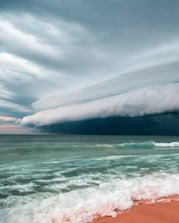
August 21, 2023
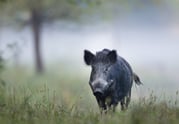
November 7, 2023
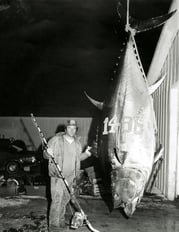
June 3, 2021

October 26, 2020
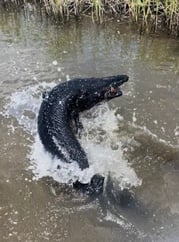
June 22, 2022
Related Articles
June 5, 2023
June 5, 2023
August 3, 2023
Featured Locations
- Fishing Charters Near Me
- Austin Fishing Guides
- Biloxi Fishing Charters
- Bradenton Fishing Charters
- Cabo San Lucas Fishing Charters
- Cancun Fishing Charters
- Cape Coral Fishing Charters
- Charleston Fishing Charters
- Clearwater Fishing Charters
- Corpus Christi Fishing Charters
- Crystal River Fishing Charters
- Dauphin Island Fishing Charters
- Daytona Beach Fishing Charters
- Destin Fishing Charters
- Fort Lauderdale Fishing Charters
- Fort Myers Fishing Charters
- Fort Walton Beach Fishing Charters
- Galveston Fishing Charters
- Gulf Shores Fishing Charters
- Hatteras Fishing Charters
- Hilton Head Fishing Charters
- Islamorada Fishing Charters
- Jacksonville Fishing Charters
- Jupiter Fishing Charters
- Key Largo Fishing Charters
- Key West Fishing Charters
- Kona Fishing Charters
- Lakeside Marblehead Fishing Charters
- Marathon Fishing Charters
- Marco Island Fishing Charters
- Miami Fishing Charters
- Montauk Fishing Charters
- Morehead City Fishing Charters
- Naples Fishing Charters
- New Orleans Fishing Charters
- New Smyrna Beach Fishing Charters
- Ocean City Fishing Charters
- Orange Beach Fishing Charters
- Panama City Beach Fishing Charters
- Pensacola Fishing Charters
- Pompano Beach Fishing Charters
- Port Aransas Fishing Charters
- Port Orange Fishing Charters
- Rockport Fishing Charters
- San Diego Fishing Charters
- San Juan Fishing Charters
- Sarasota Fishing Charters
- South Padre Island Fishing Charters
- St. Augustine Fishing Charters
- St. Petersburg Fishing Charters
- Tampa Fishing Charters
- Tarpon Springs Fishing Charters
- Venice Fishing Charters
- Virginia Beach Fishing Charters
- West Palm Beach Fishing Charters
- Wilmington Fishing Charters
- Wrightsville Beach Fishing Charters
